We Dive Into Your Projects
What systems have you built or maintained? We probe the scale, complexity, and tech stack.
"Tell me about the architecture of the last system you built..."61+ Information Technology Resume Examples
In Information Technology, you're competing with 1,040 applicants per search
You're Not Rejected.
— You're Overlooked —
We fix your information technology resume with one conversation
The strongest IT resumes lead with infrastructure scale, system uptime, security posture, and business outcomes — not technology stack inventories or certification lists. Hiring managers at companies like Google, Microsoft, Amazon, and Cisco scan for user base supported, cost optimization achieved, incident response performance, and proof that your technology leadership drove measurable business results. Every resume sample on this page was built through a 1-on-1 interview that extracted the specific infrastructure and technology outcomes that differentiate candidates in a field averaging 1,040 competitors per job search.
Each information technology resume sample below was written through our 1-on-1 interview process. Click any information technology resume example to see the full sample and learn how we transformed their experience into proof.
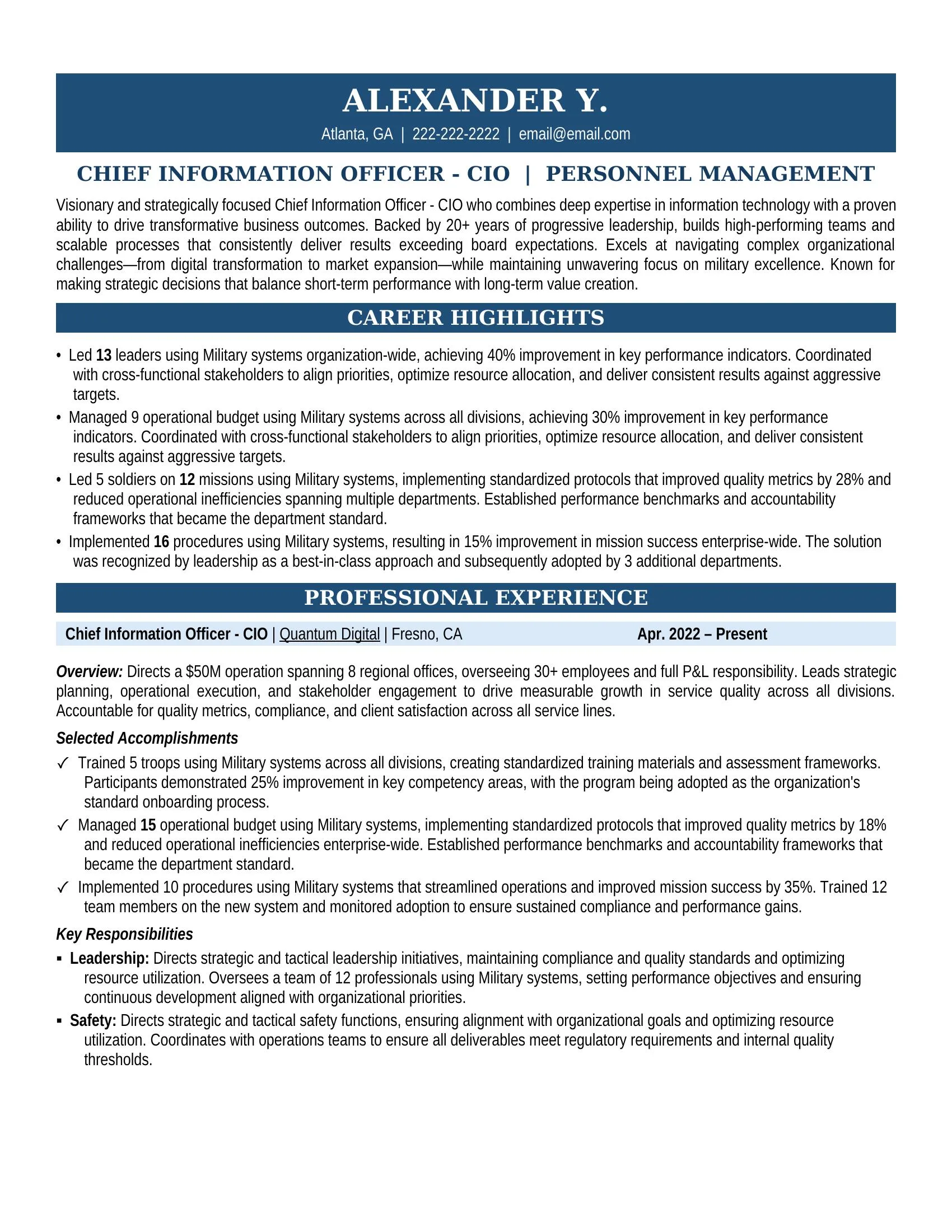
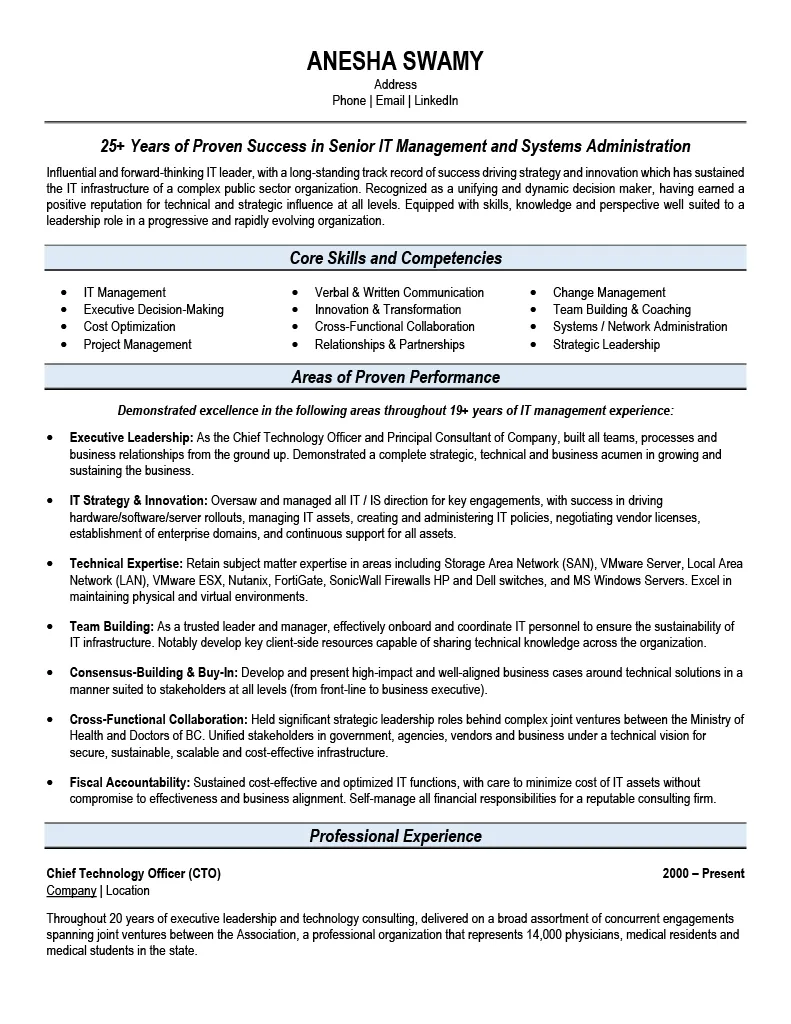
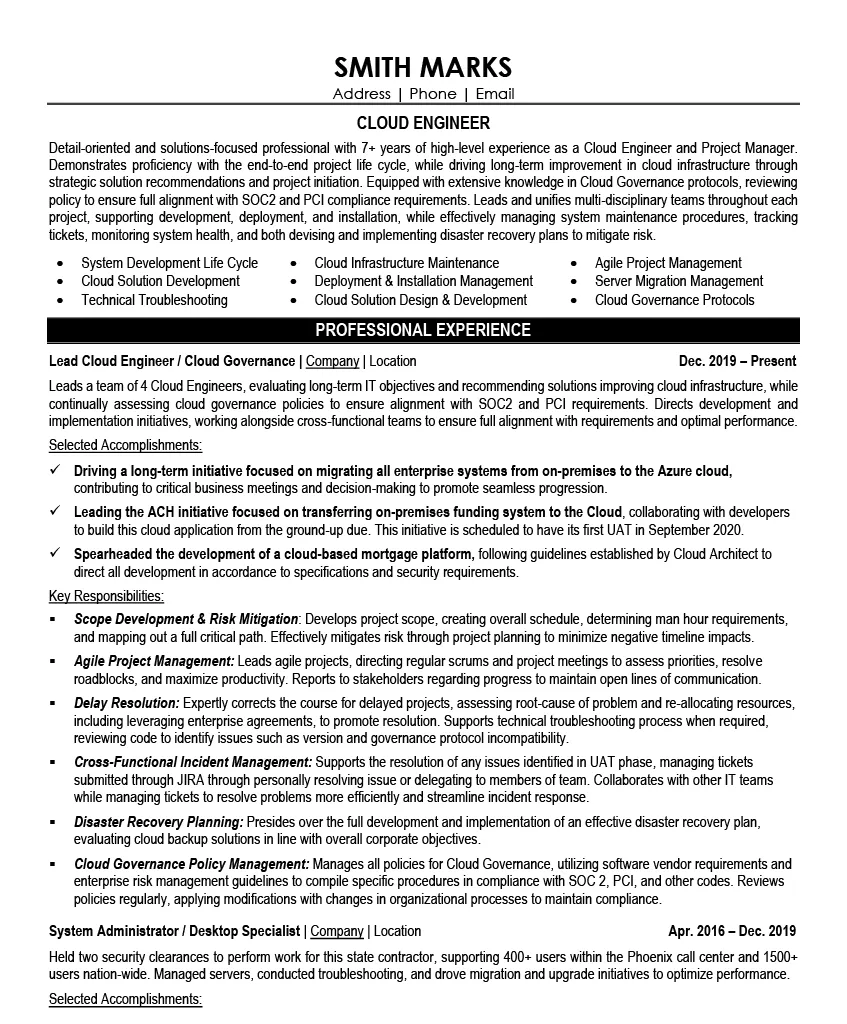
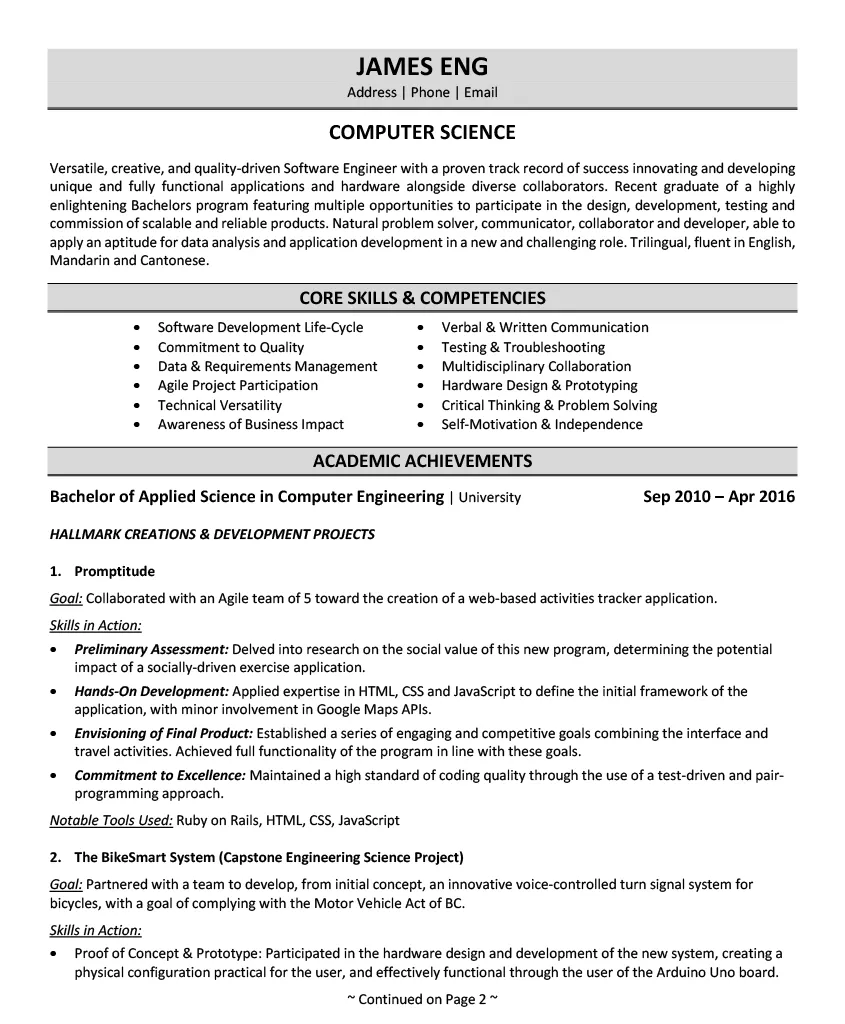
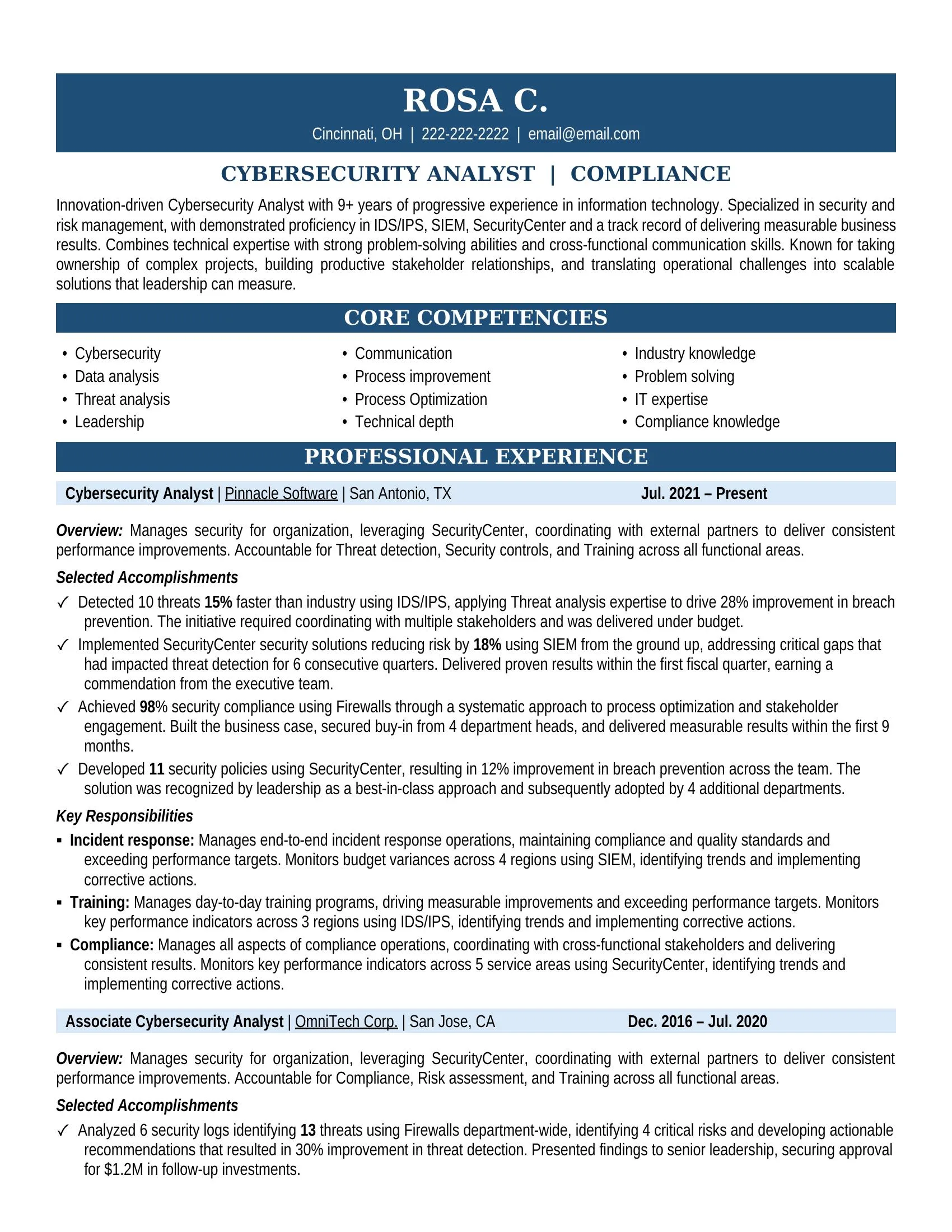
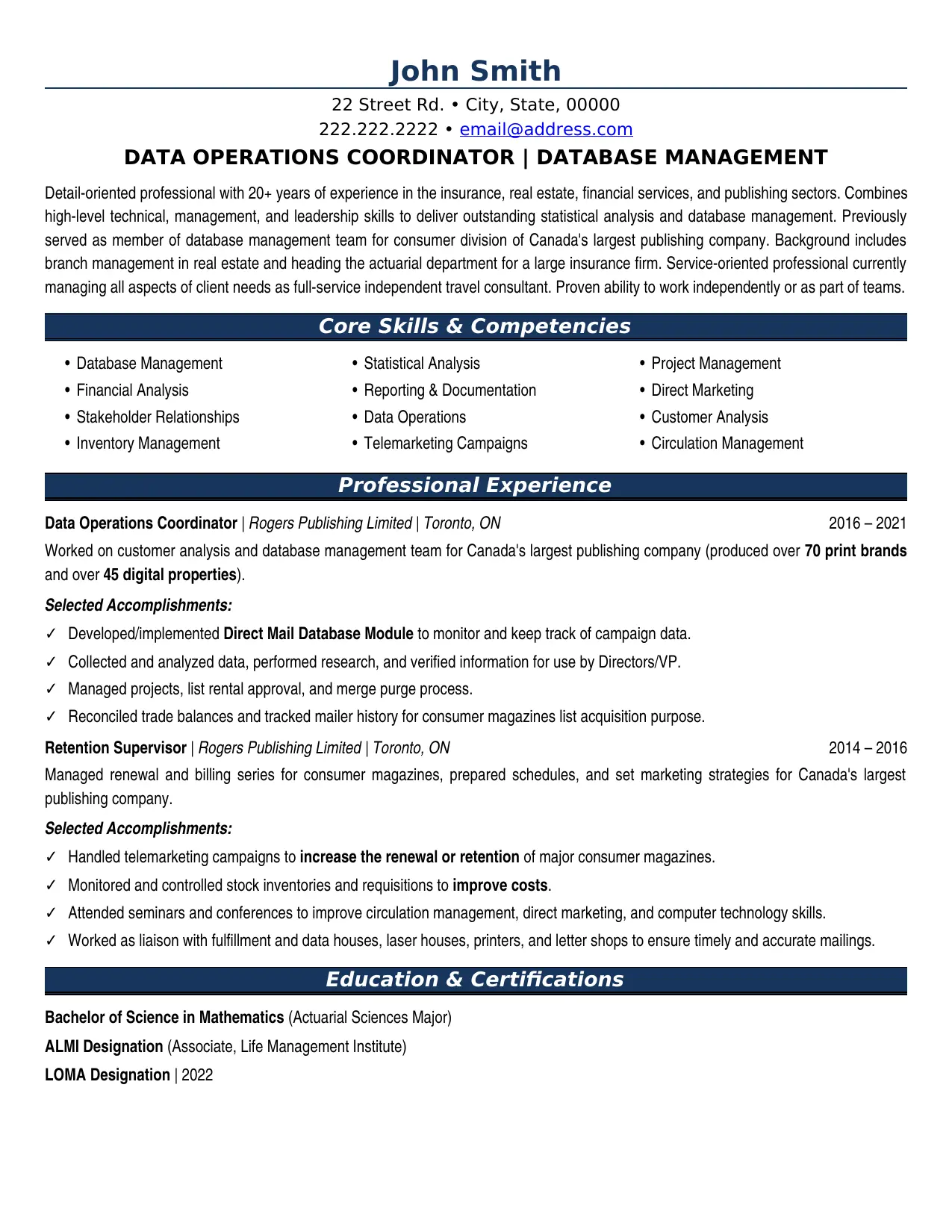
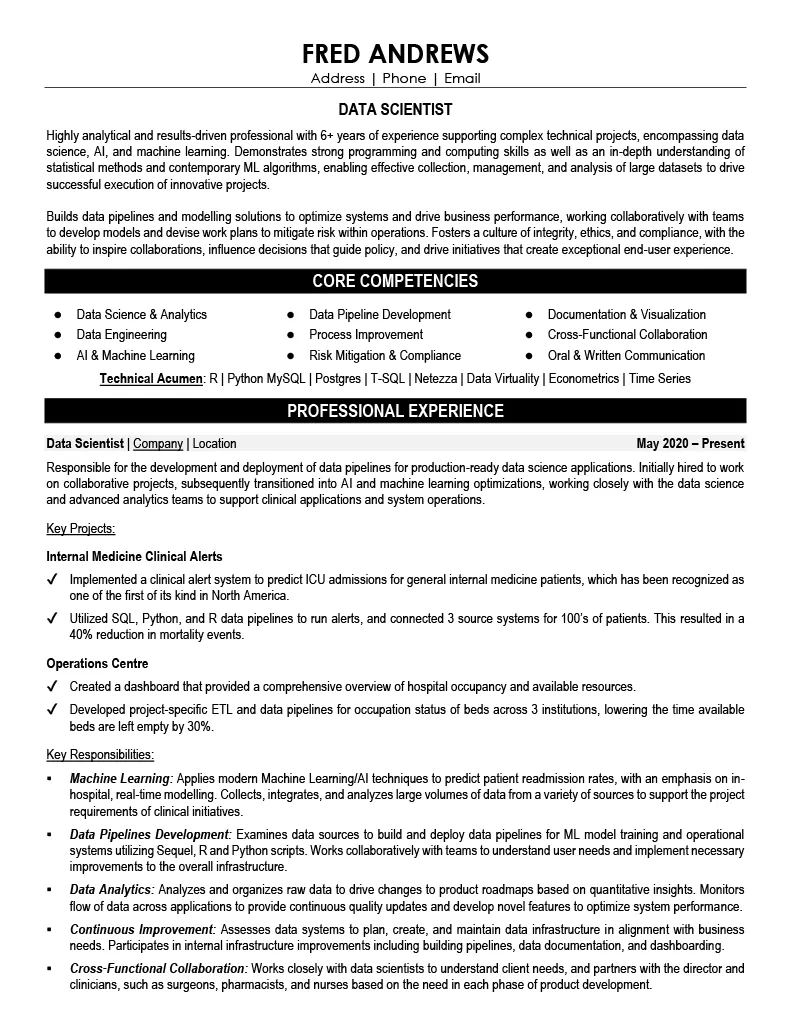
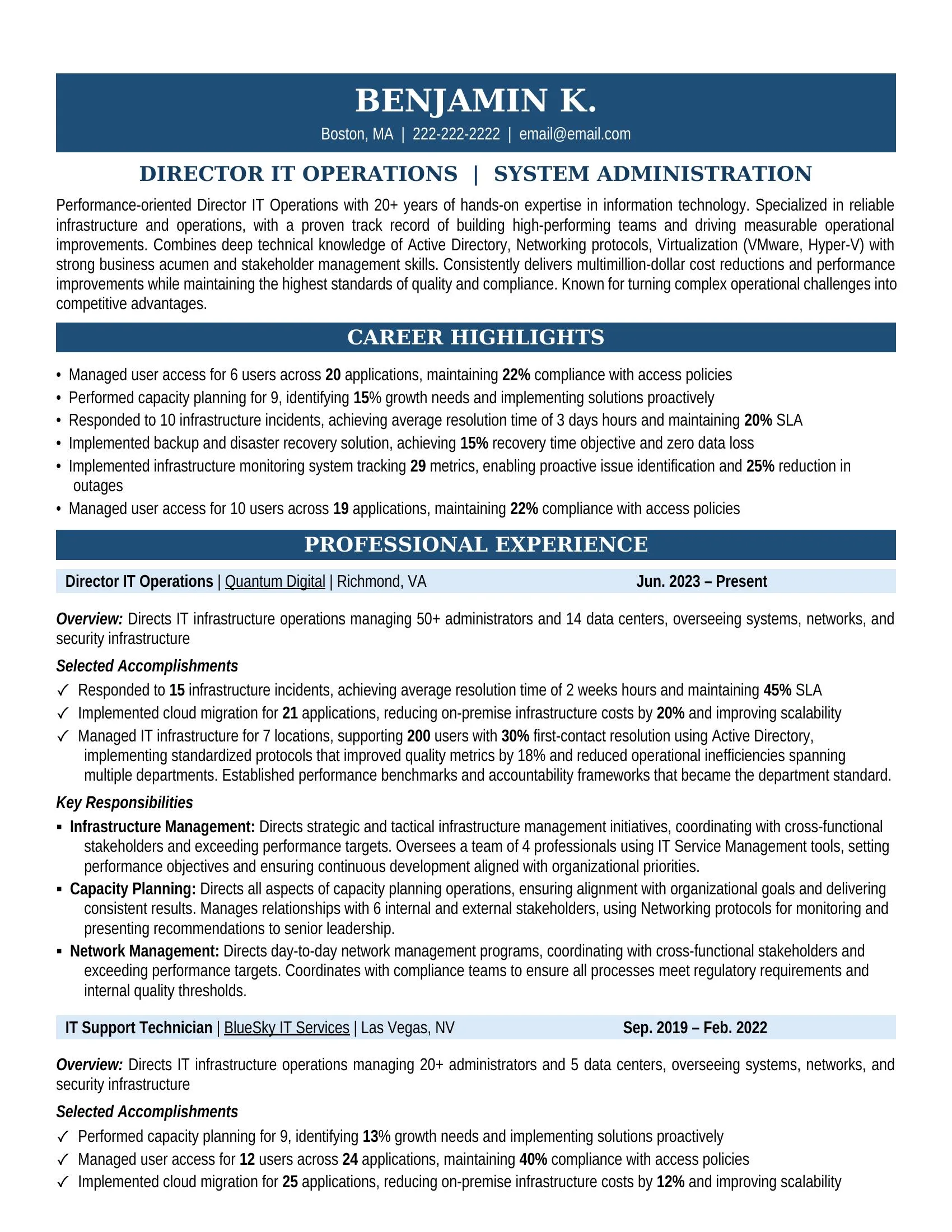
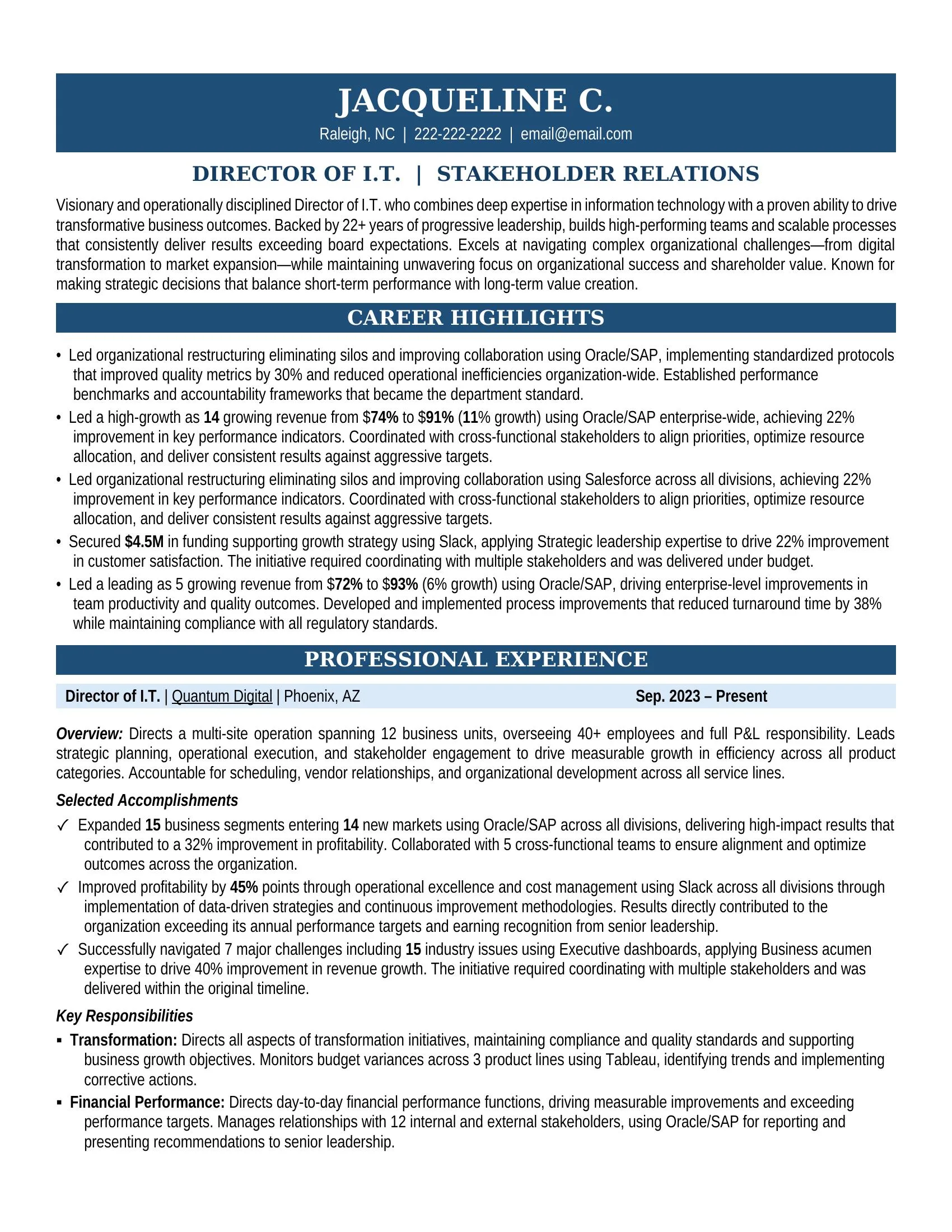
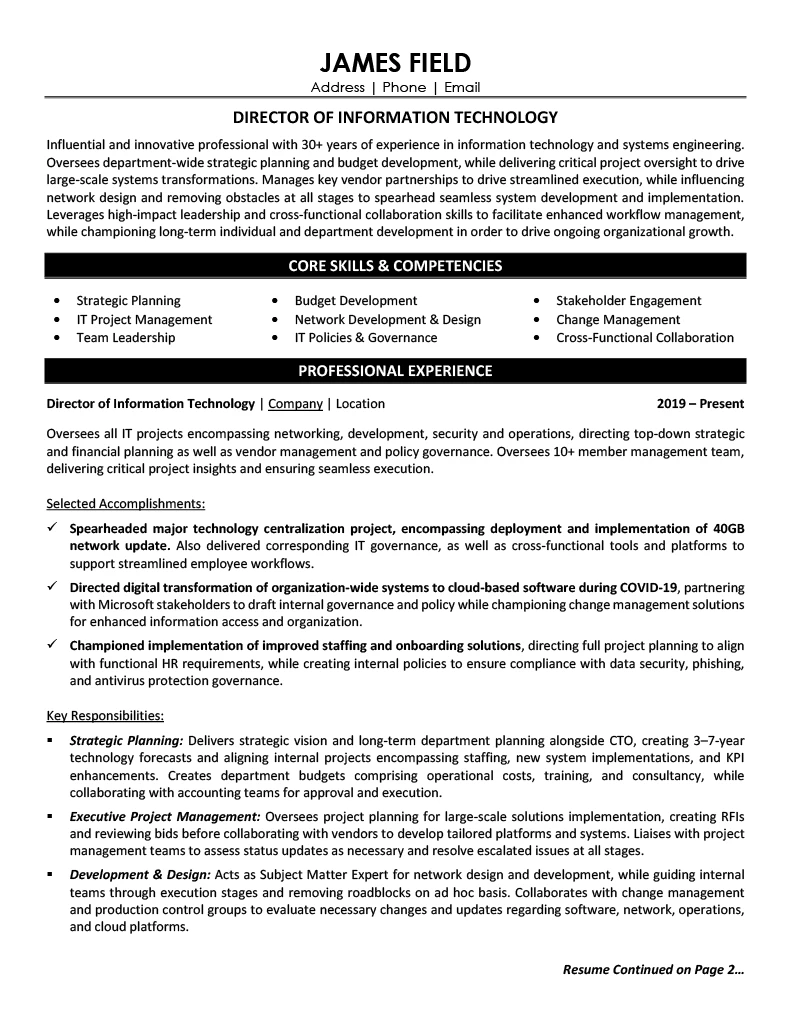
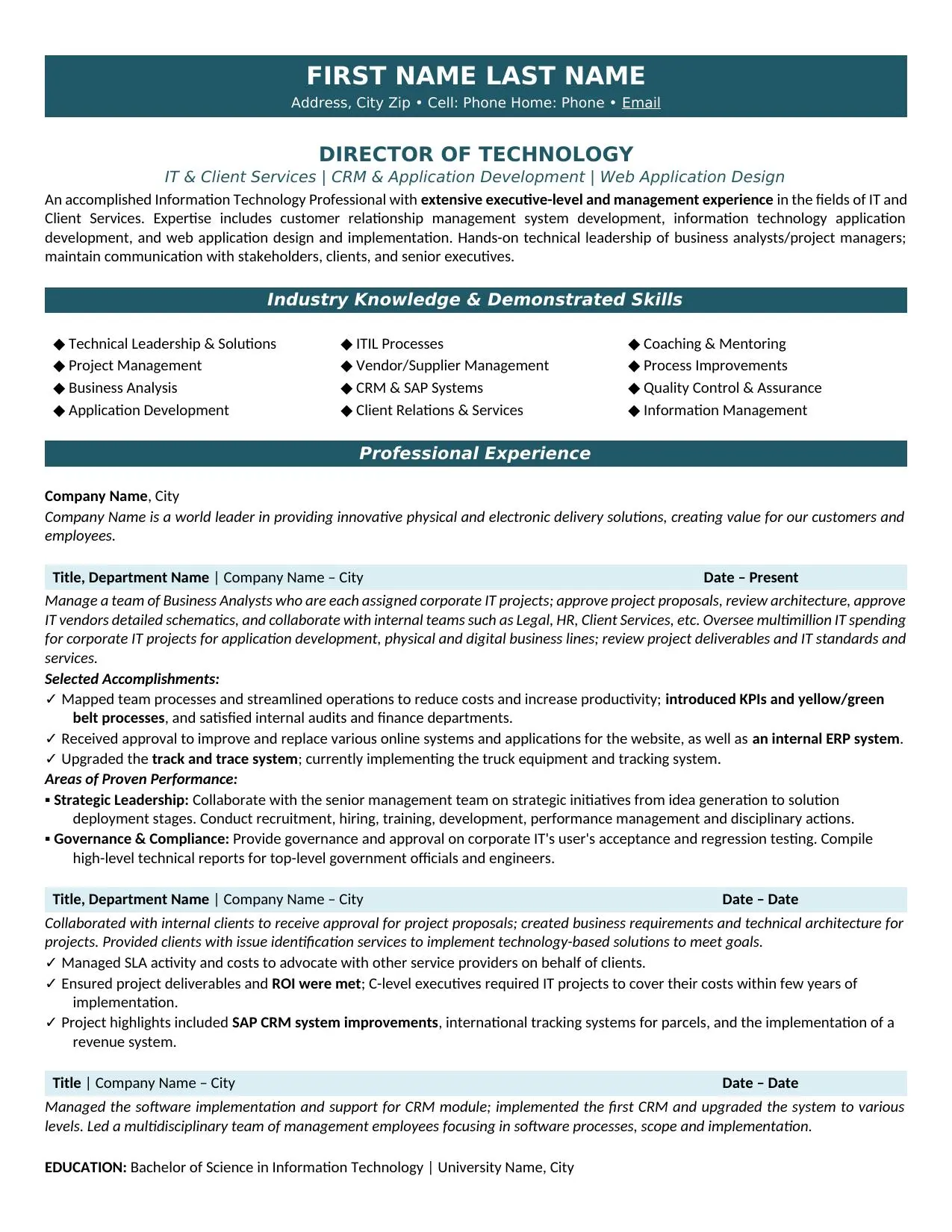
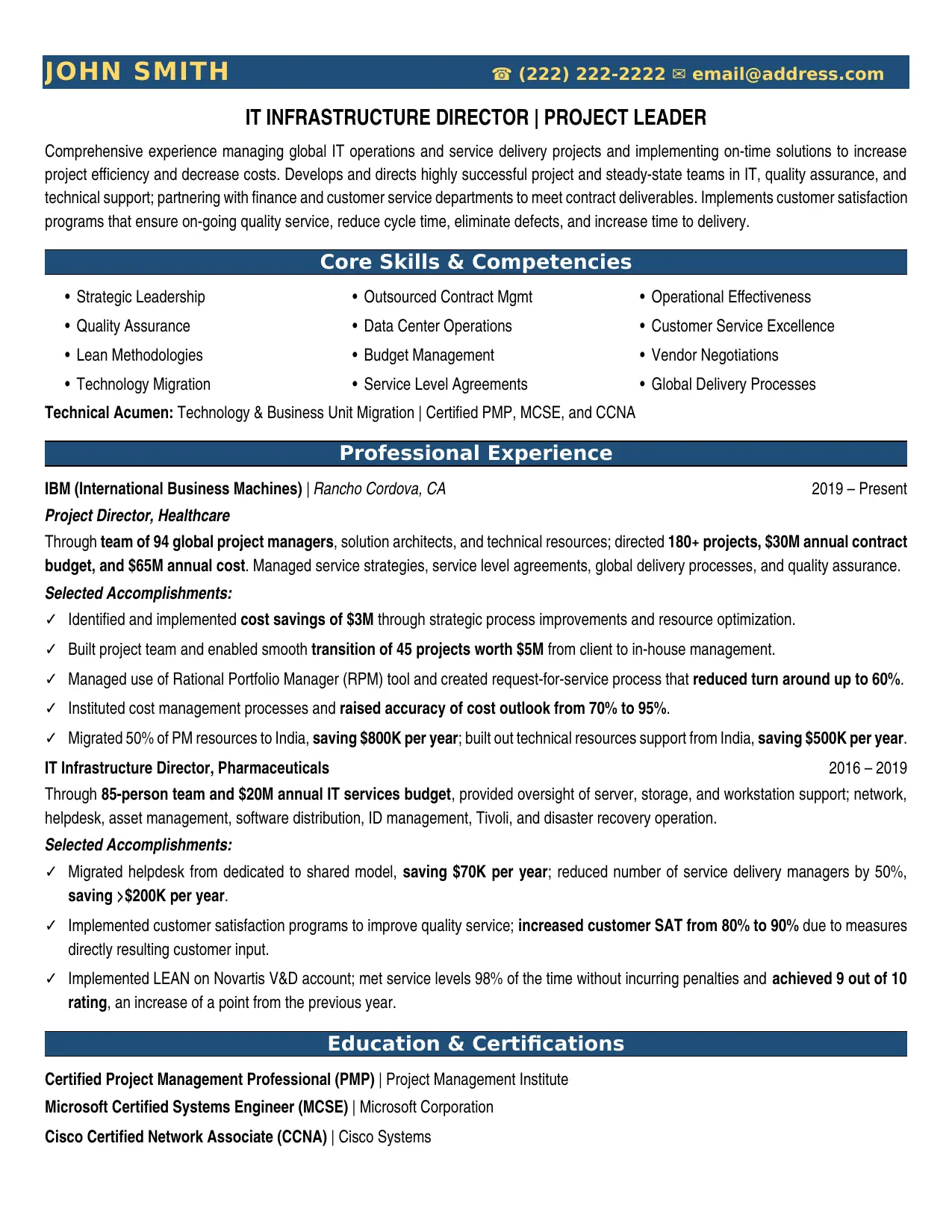
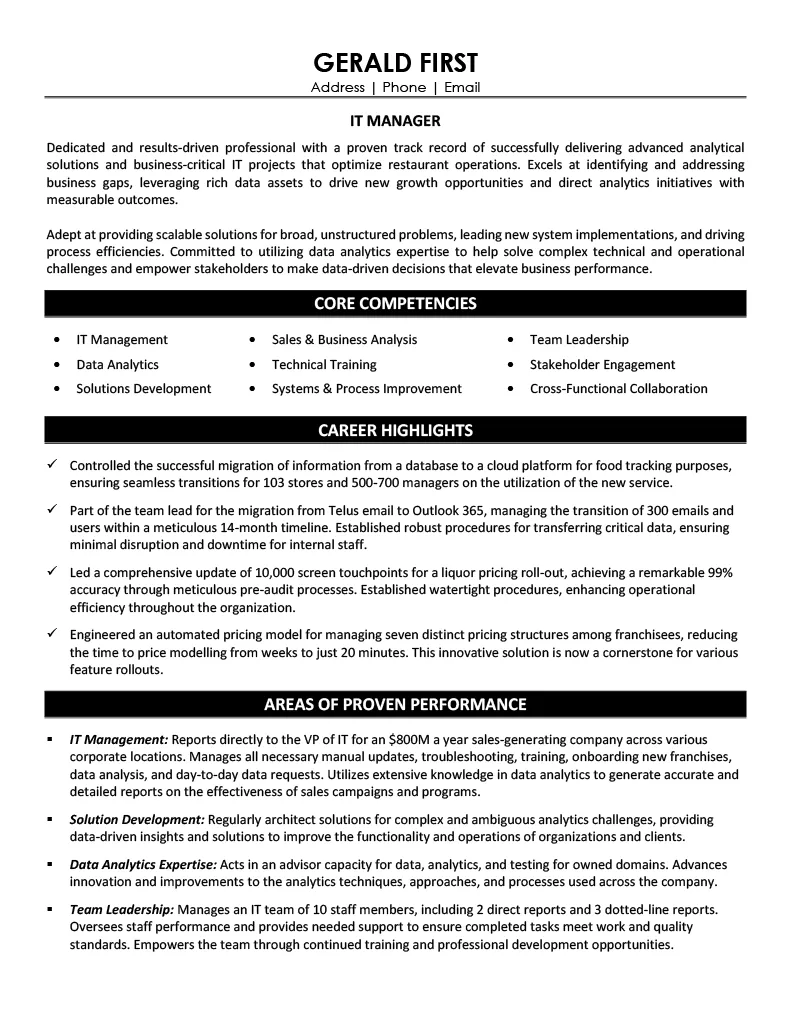
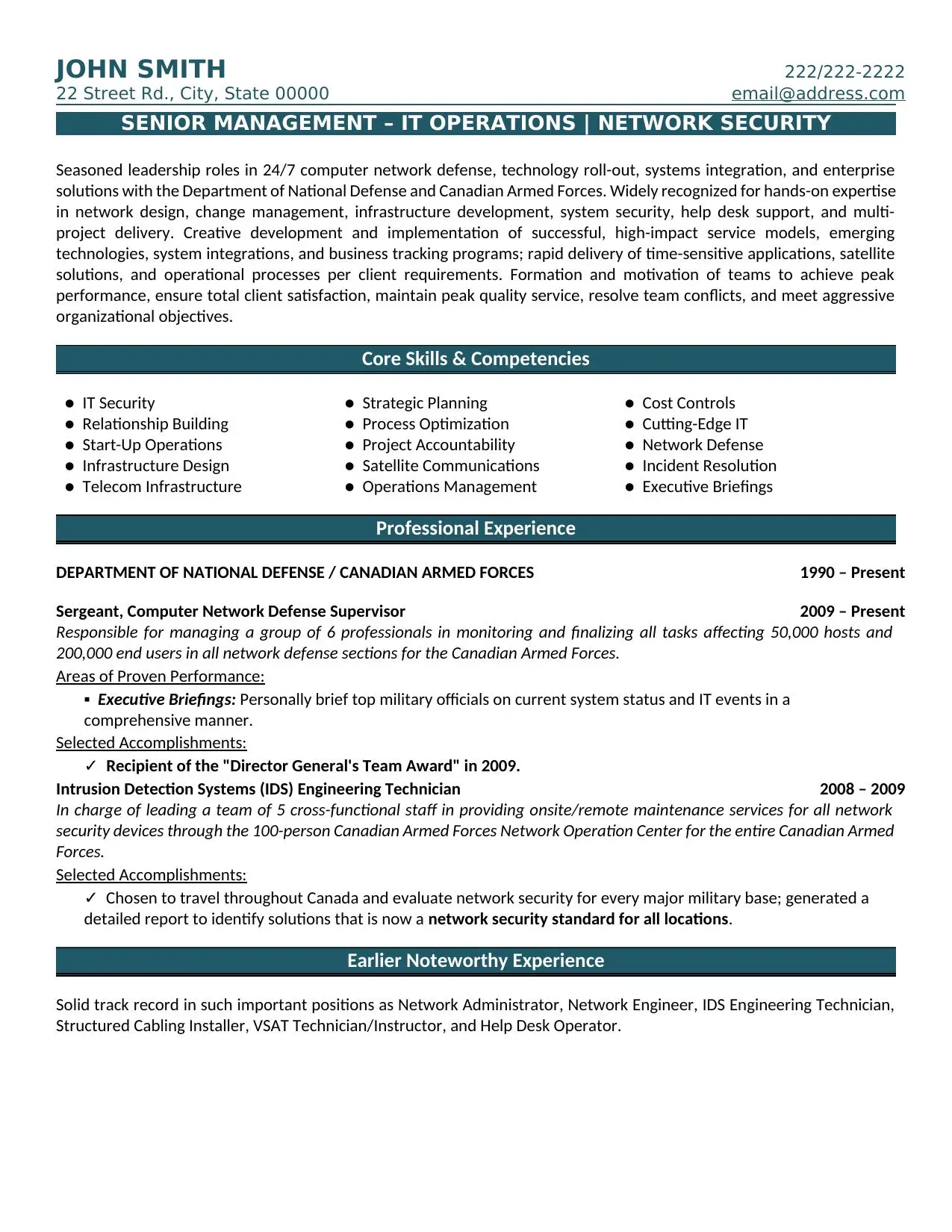
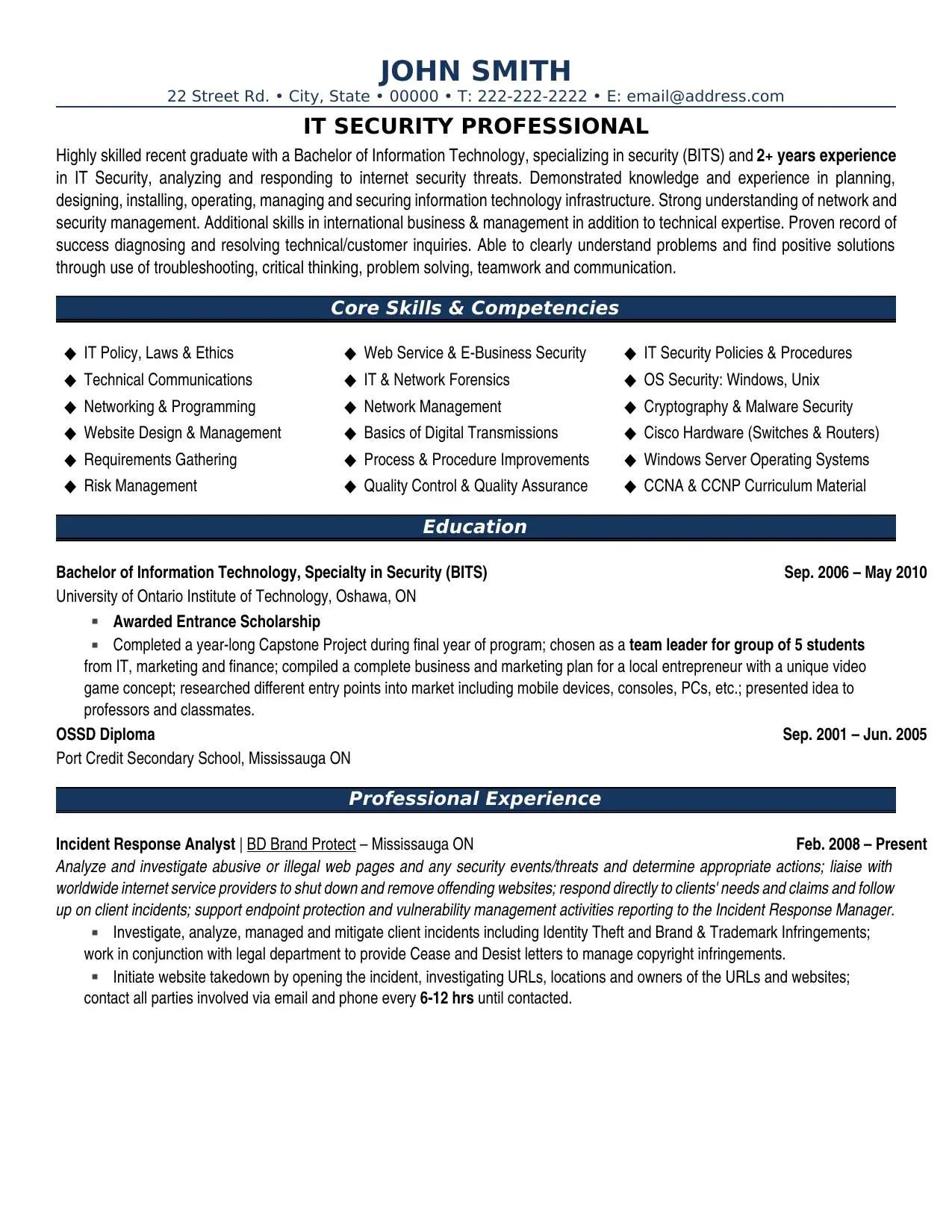
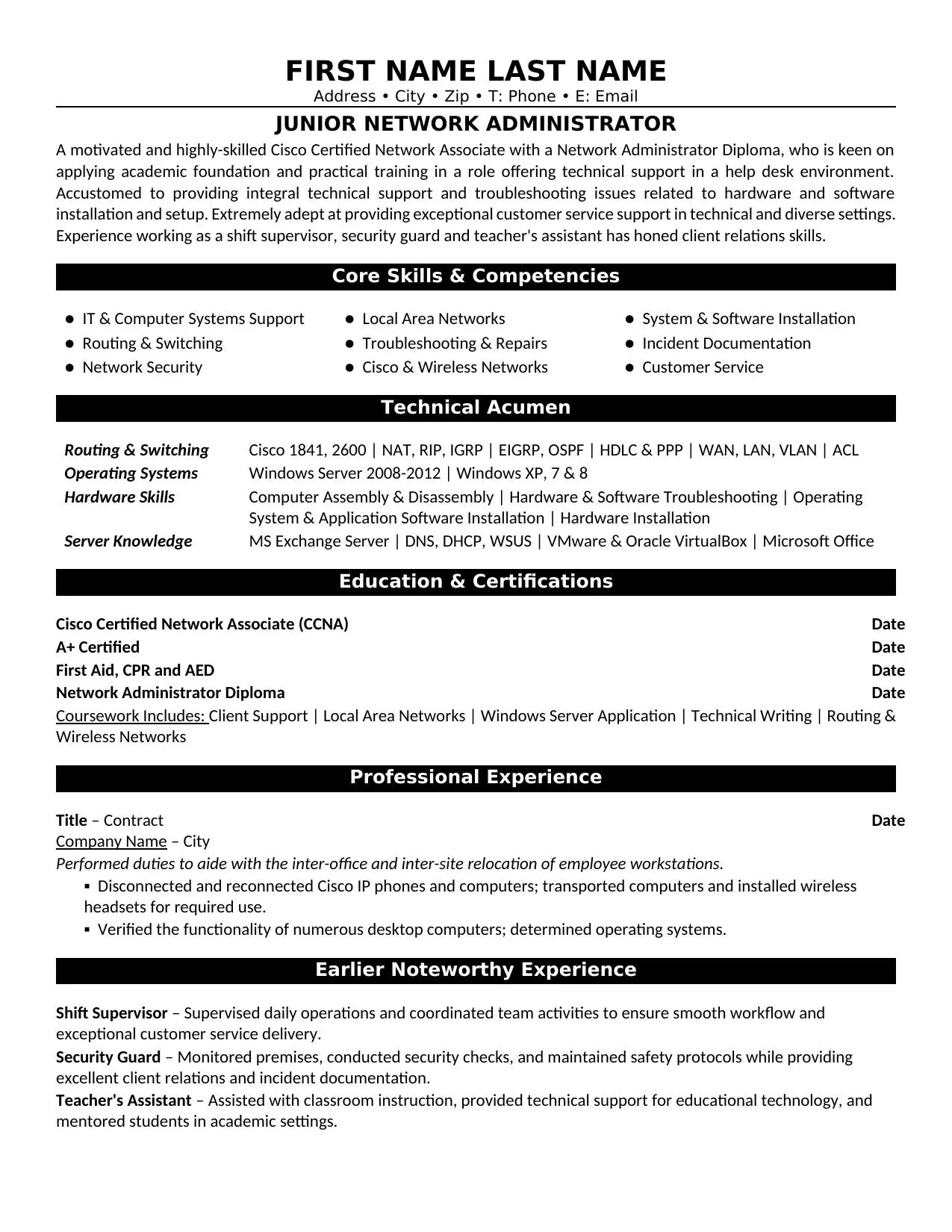
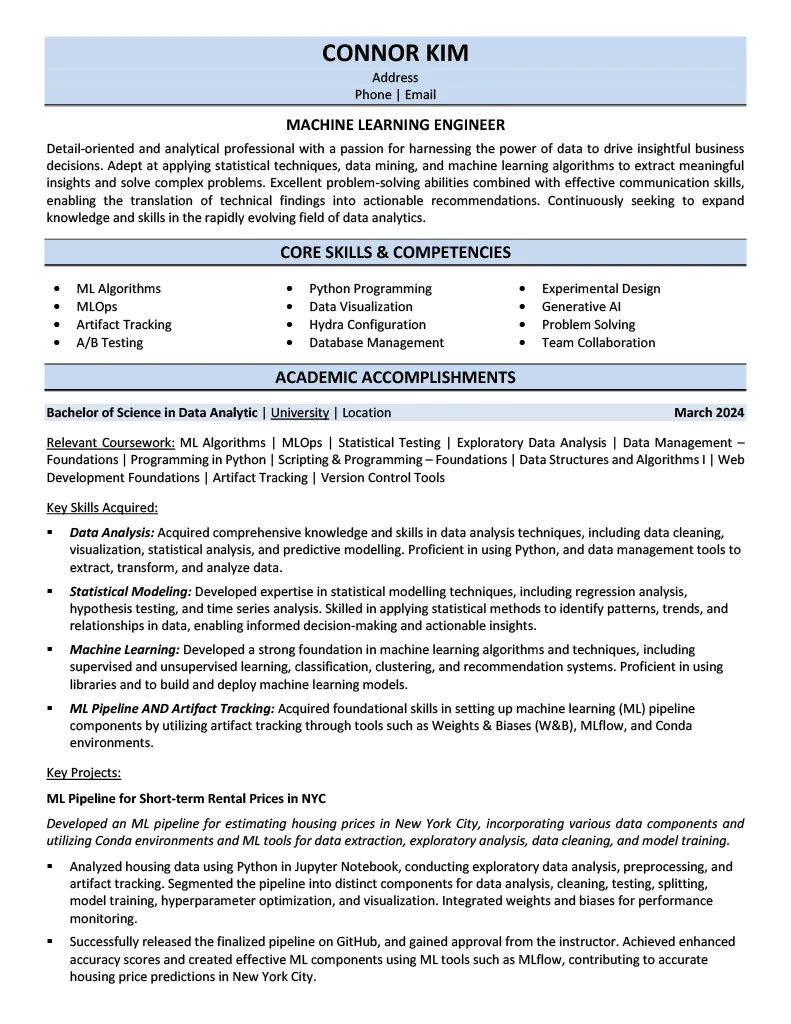
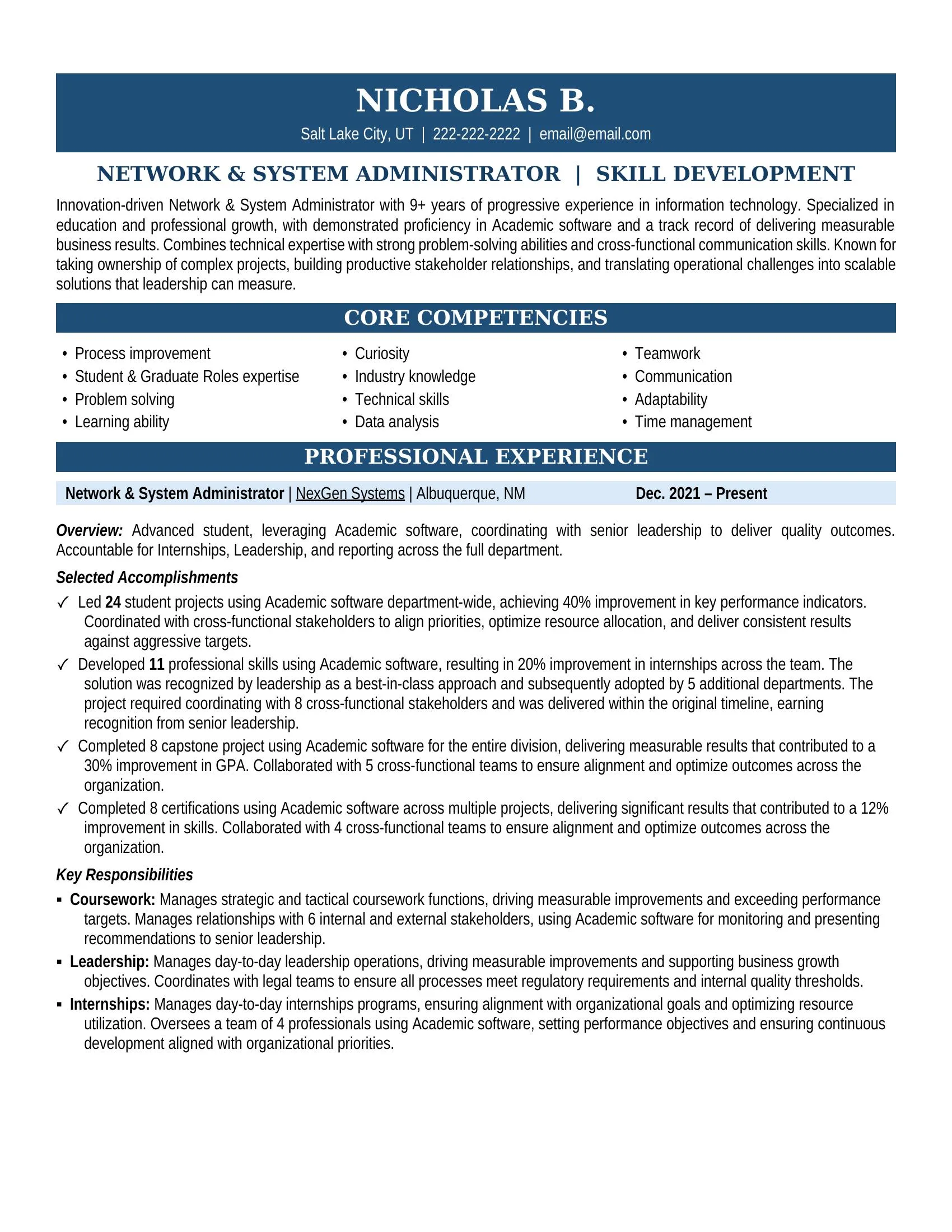
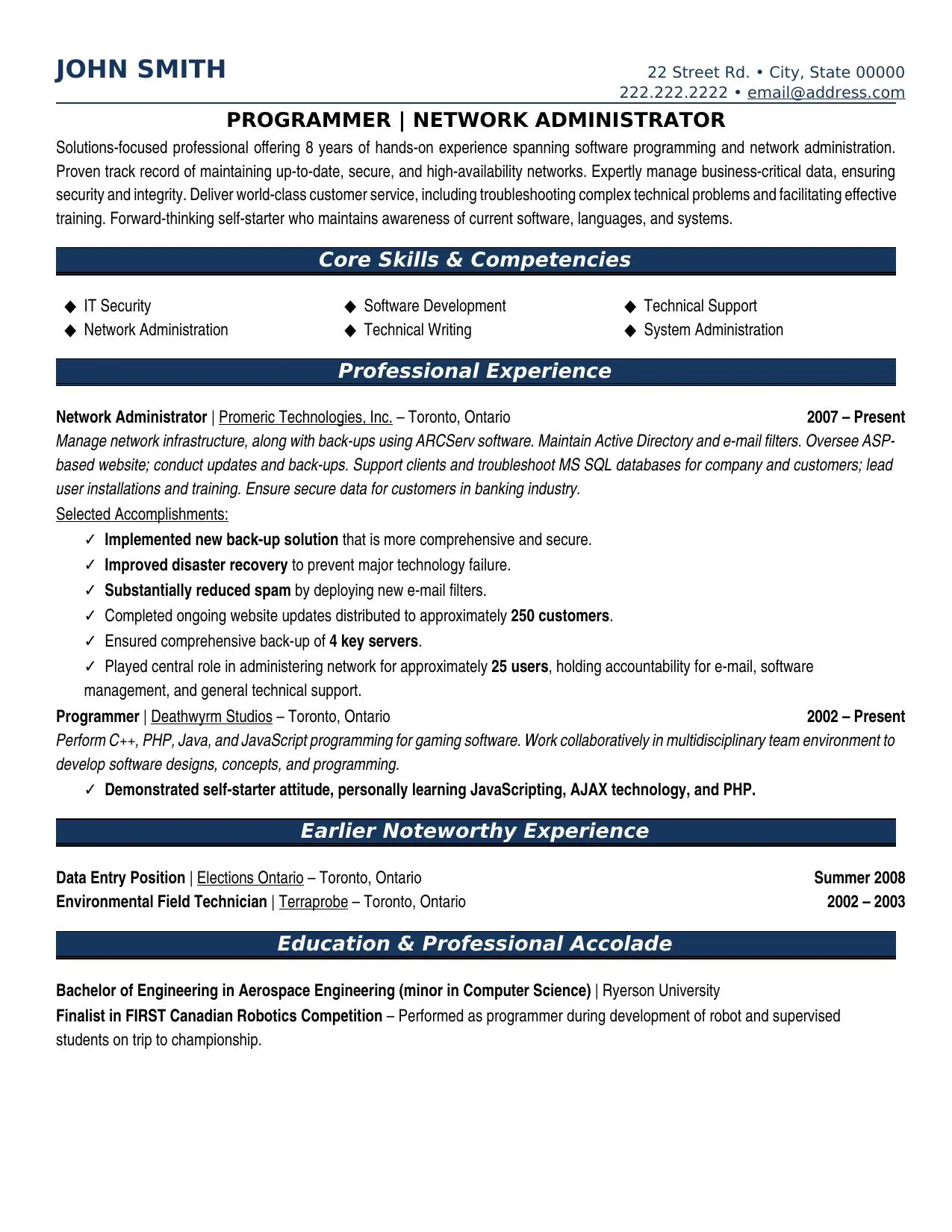
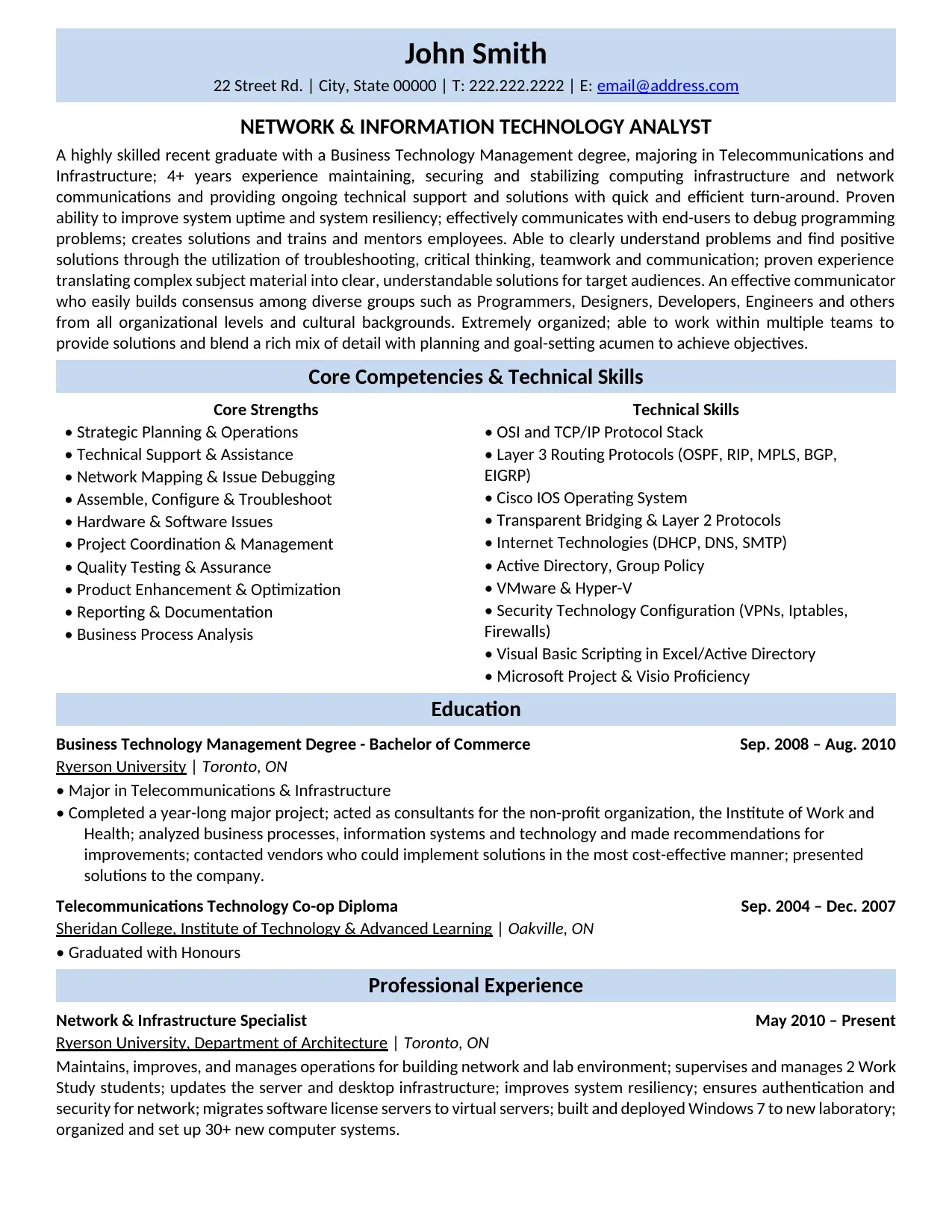
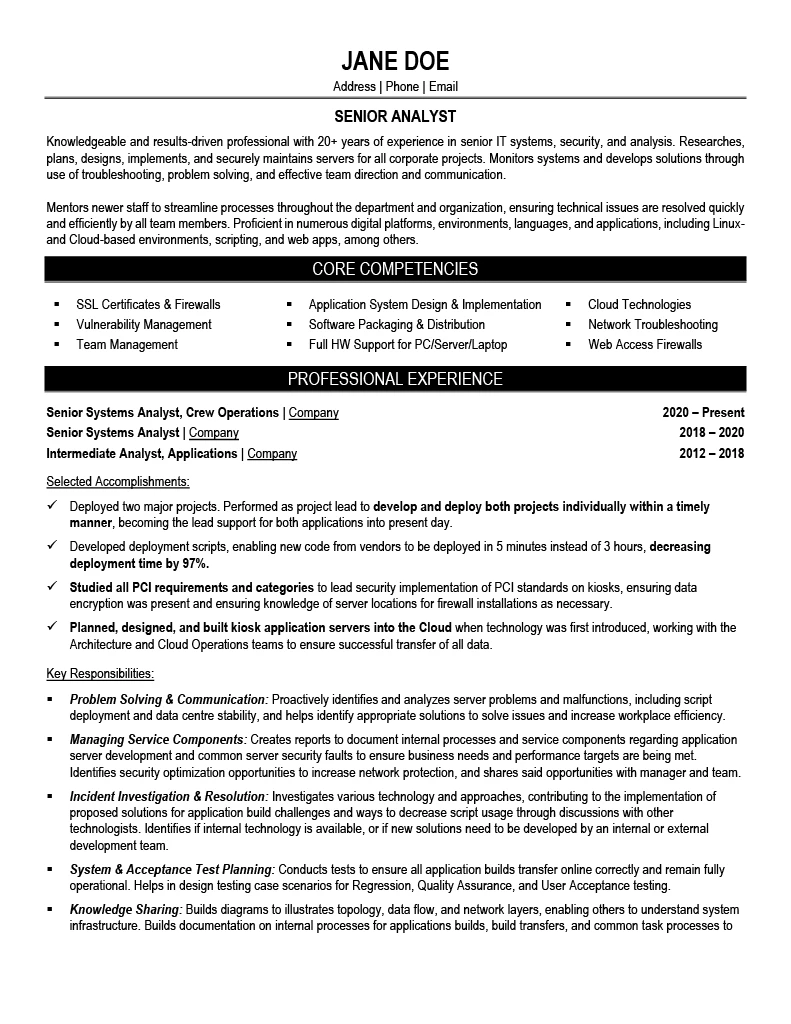
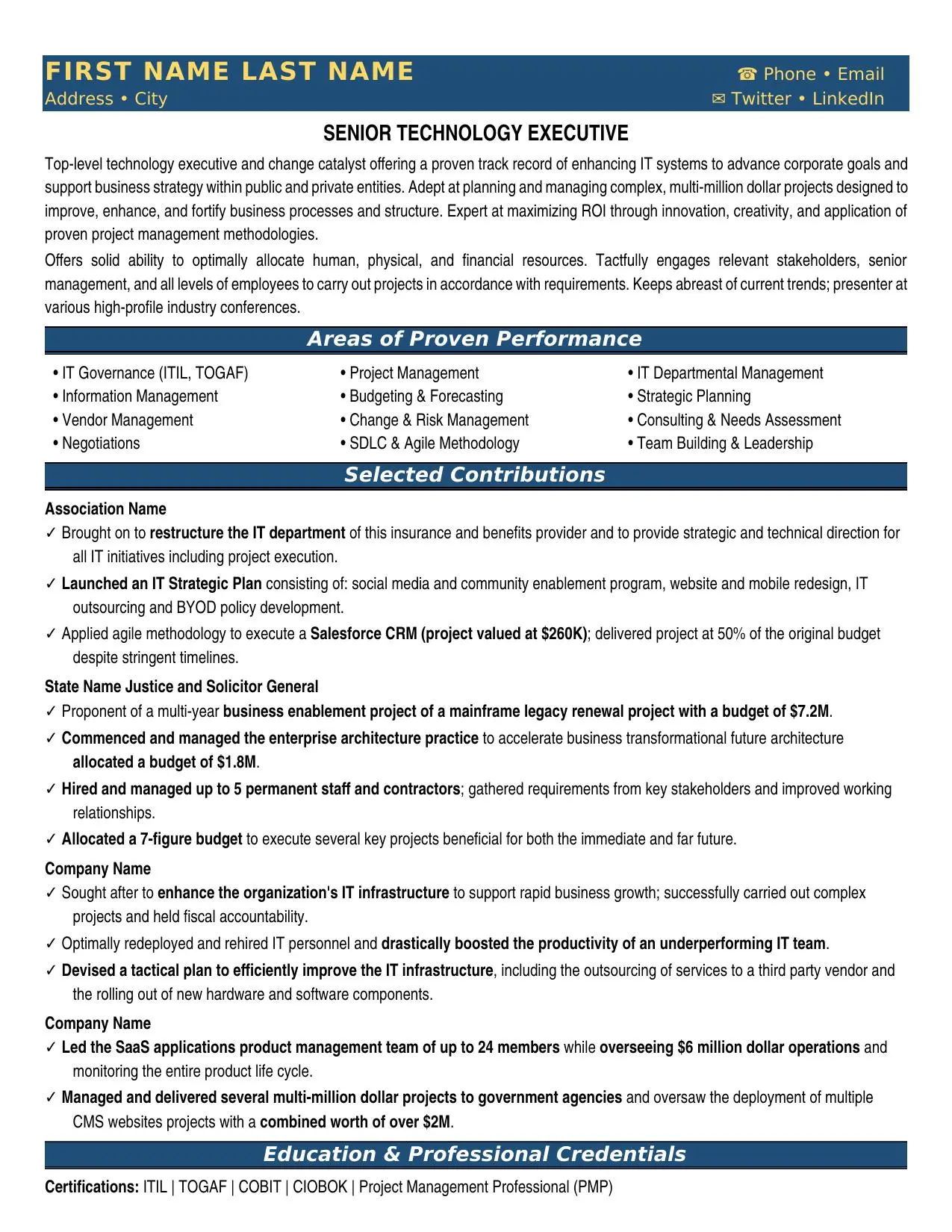
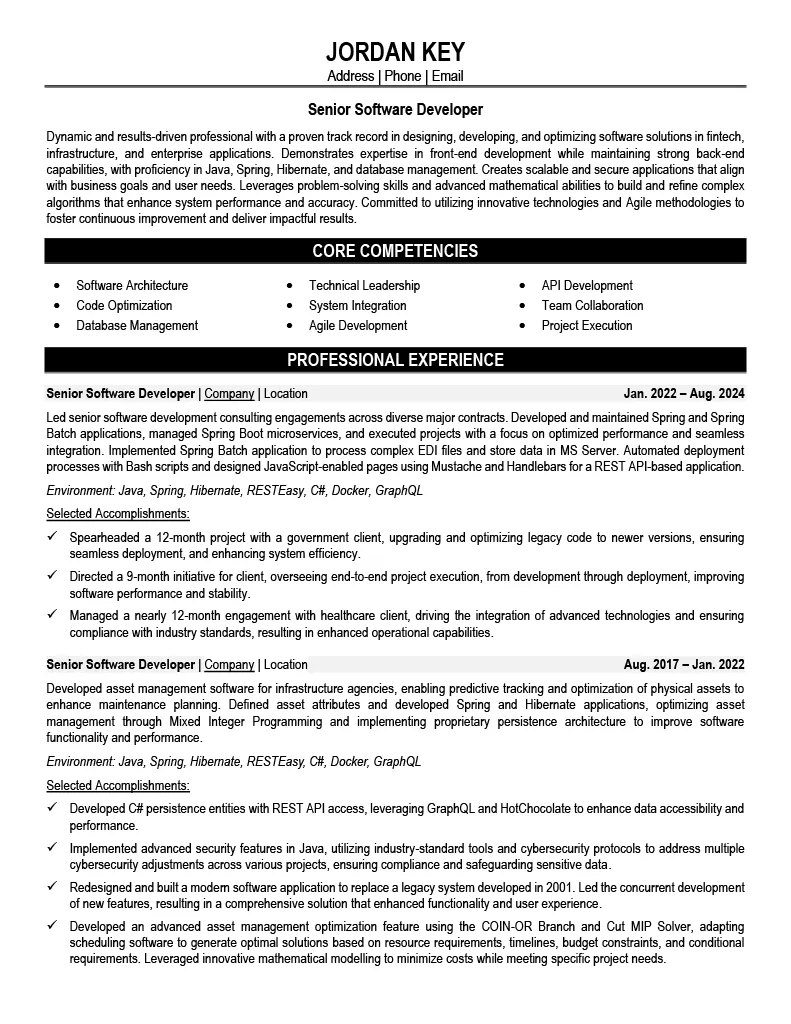
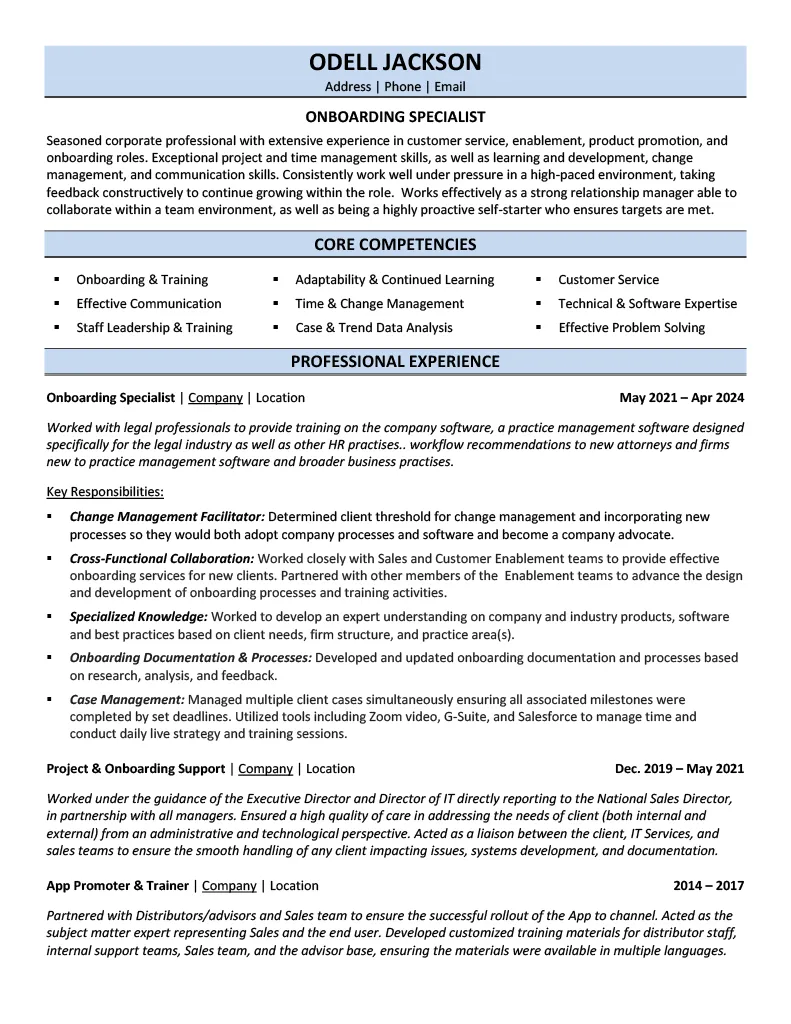
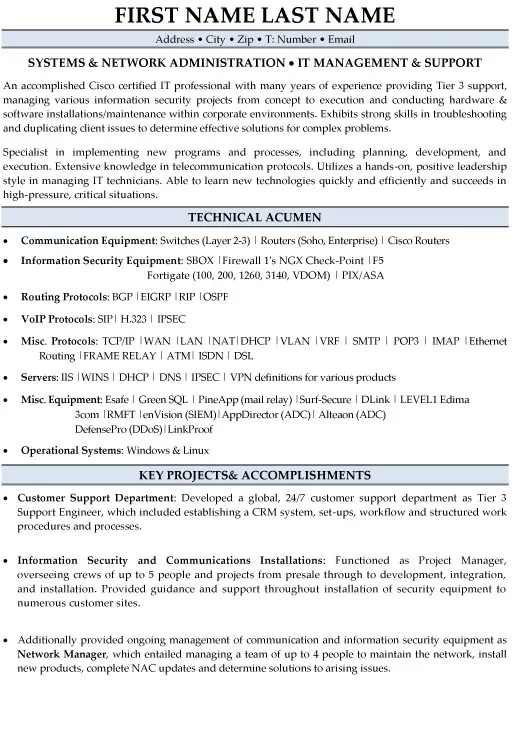
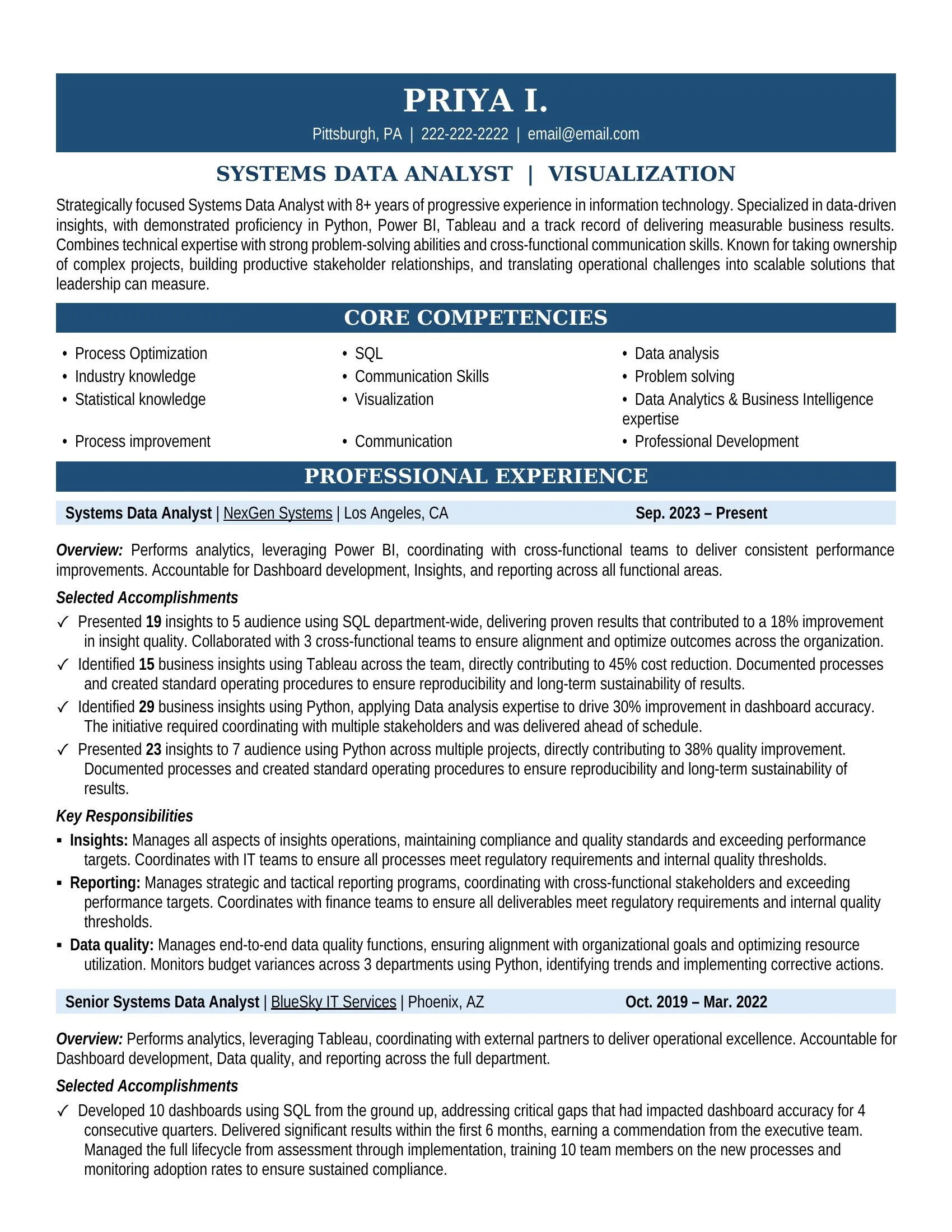
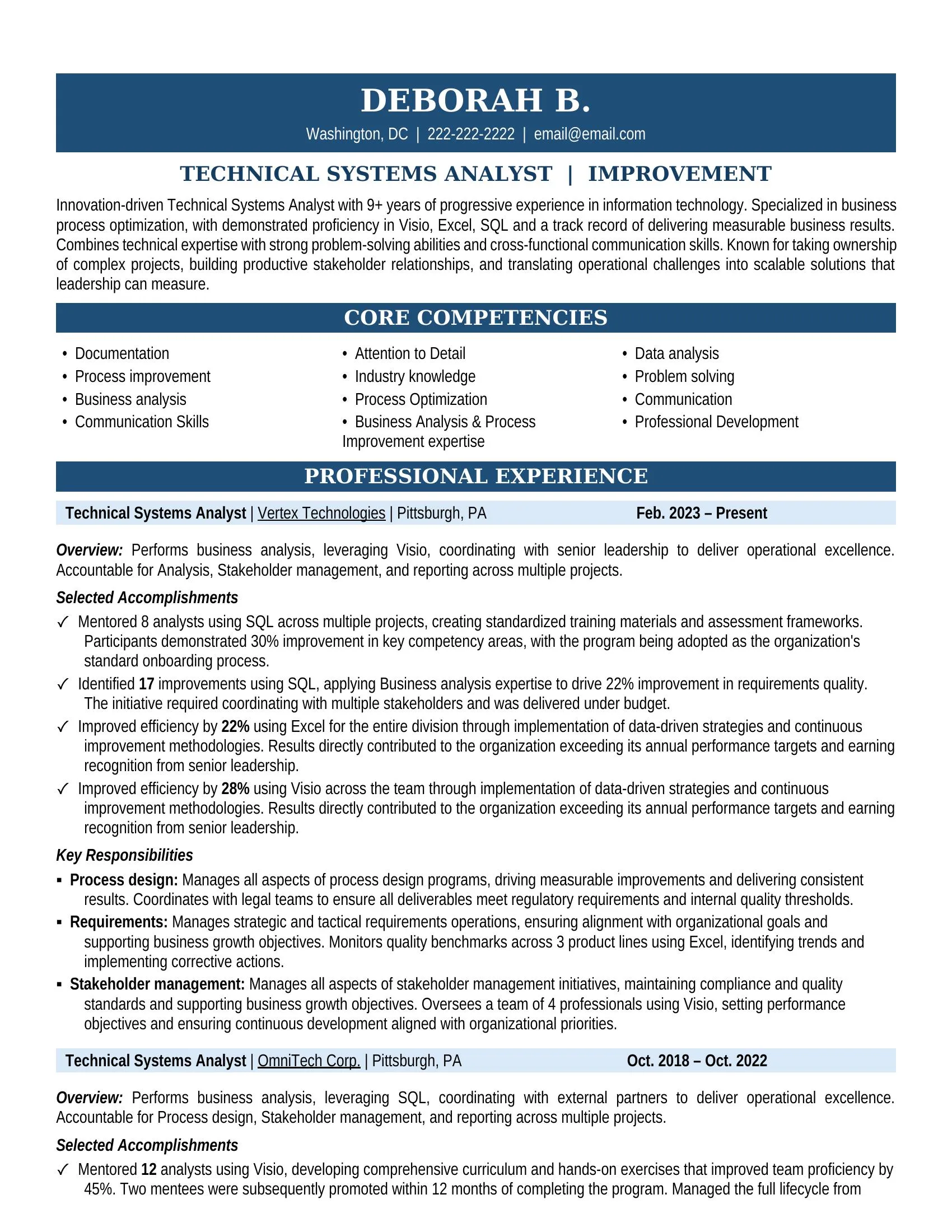
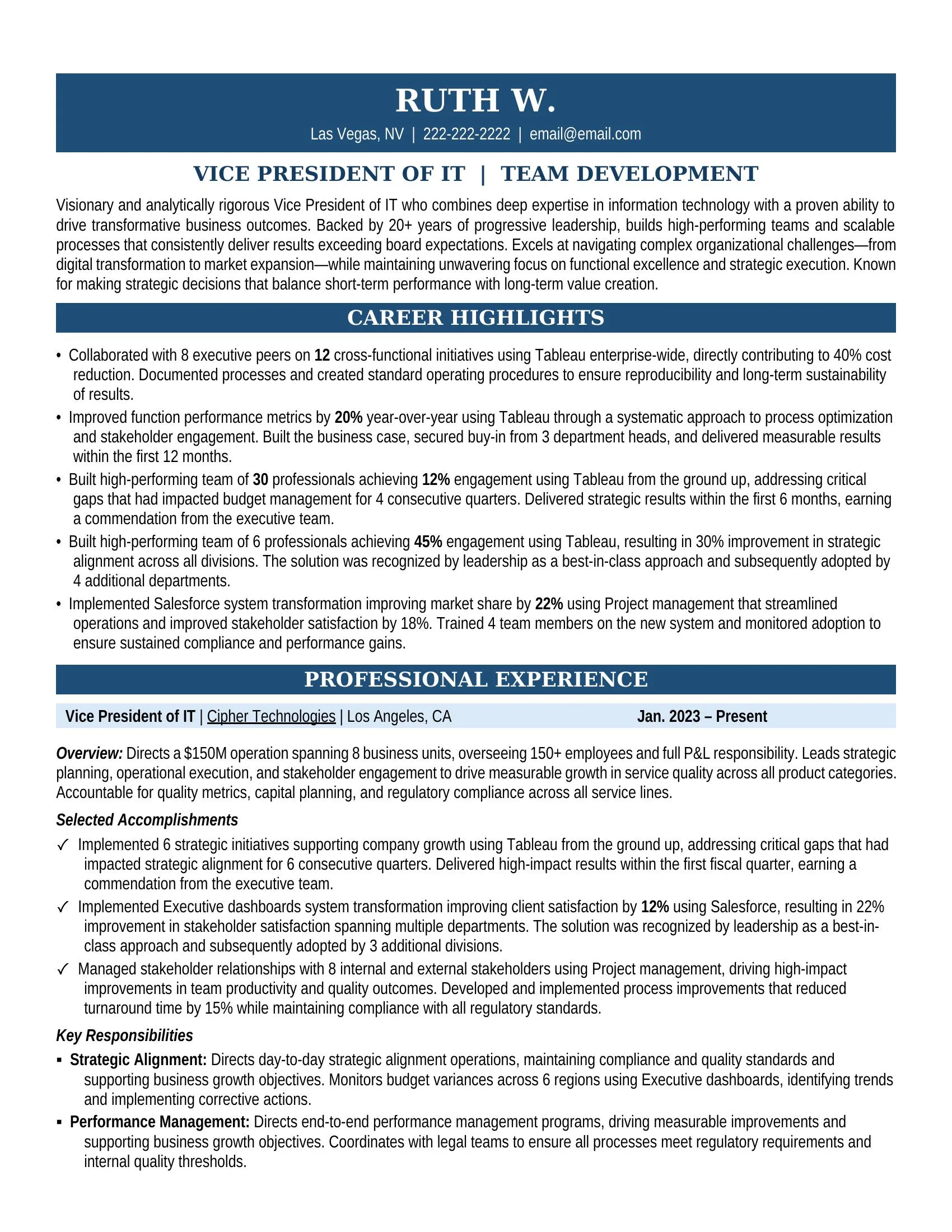
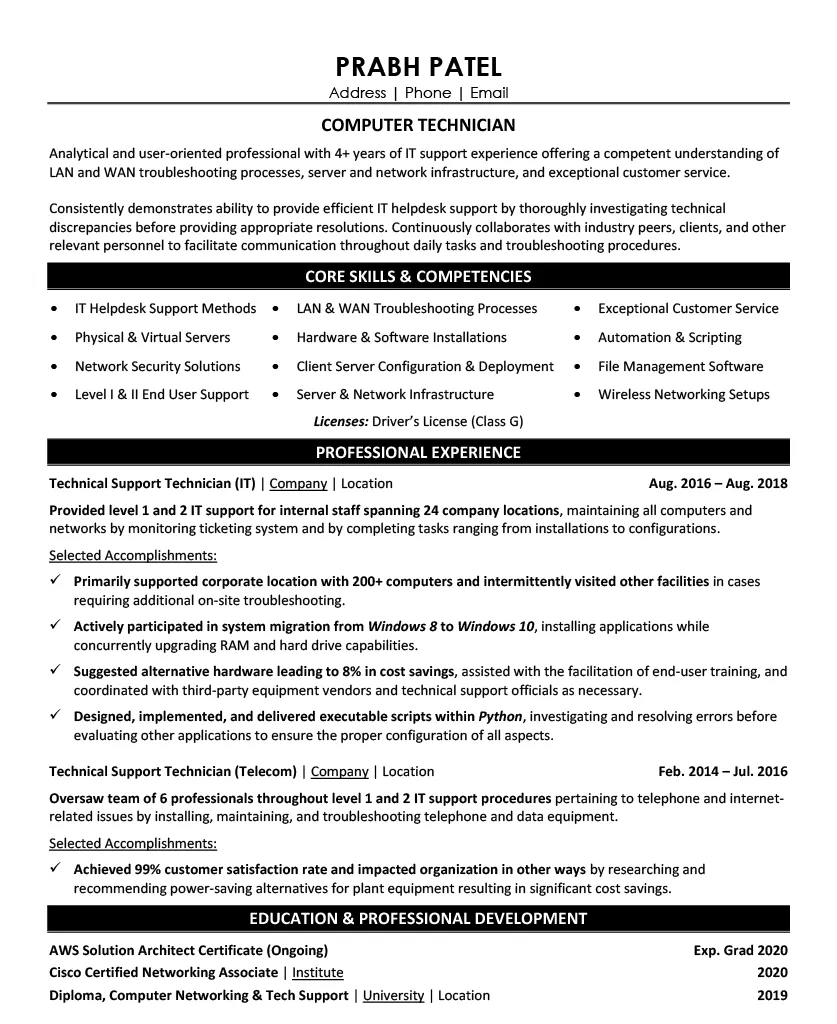
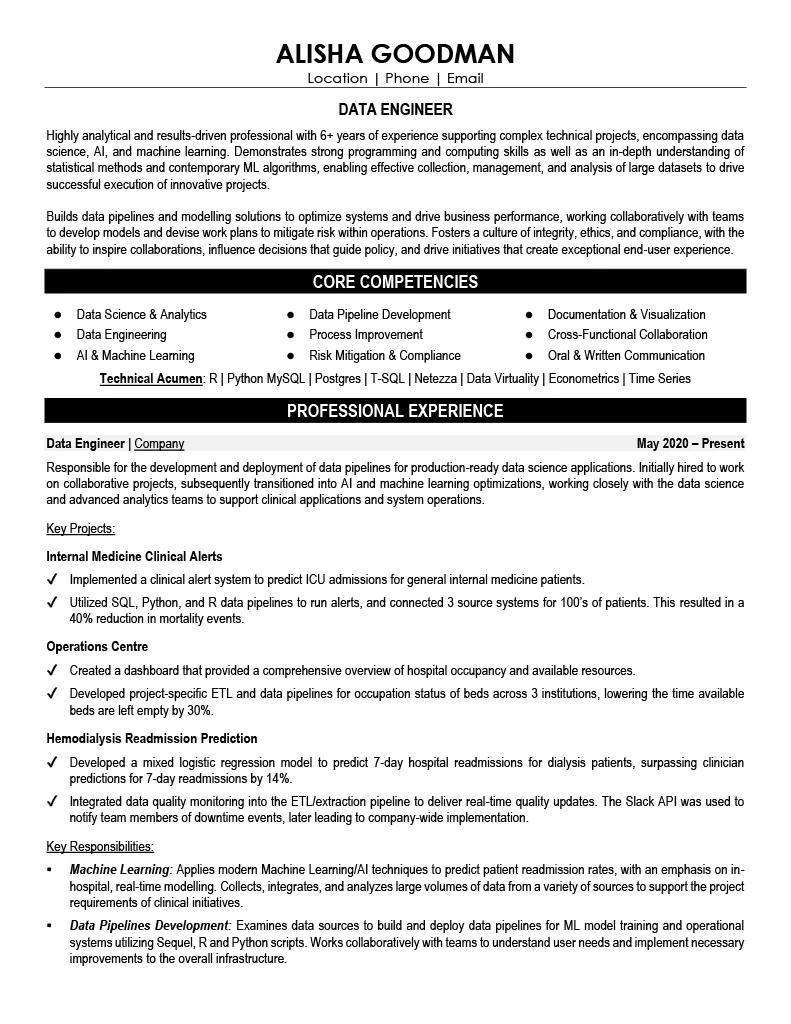
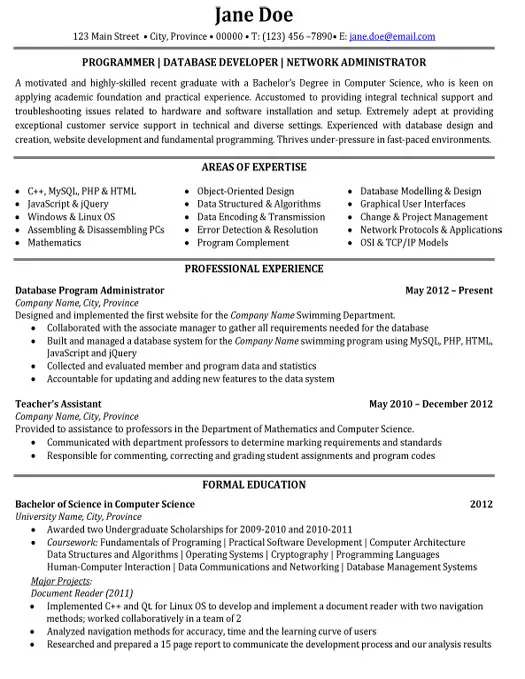
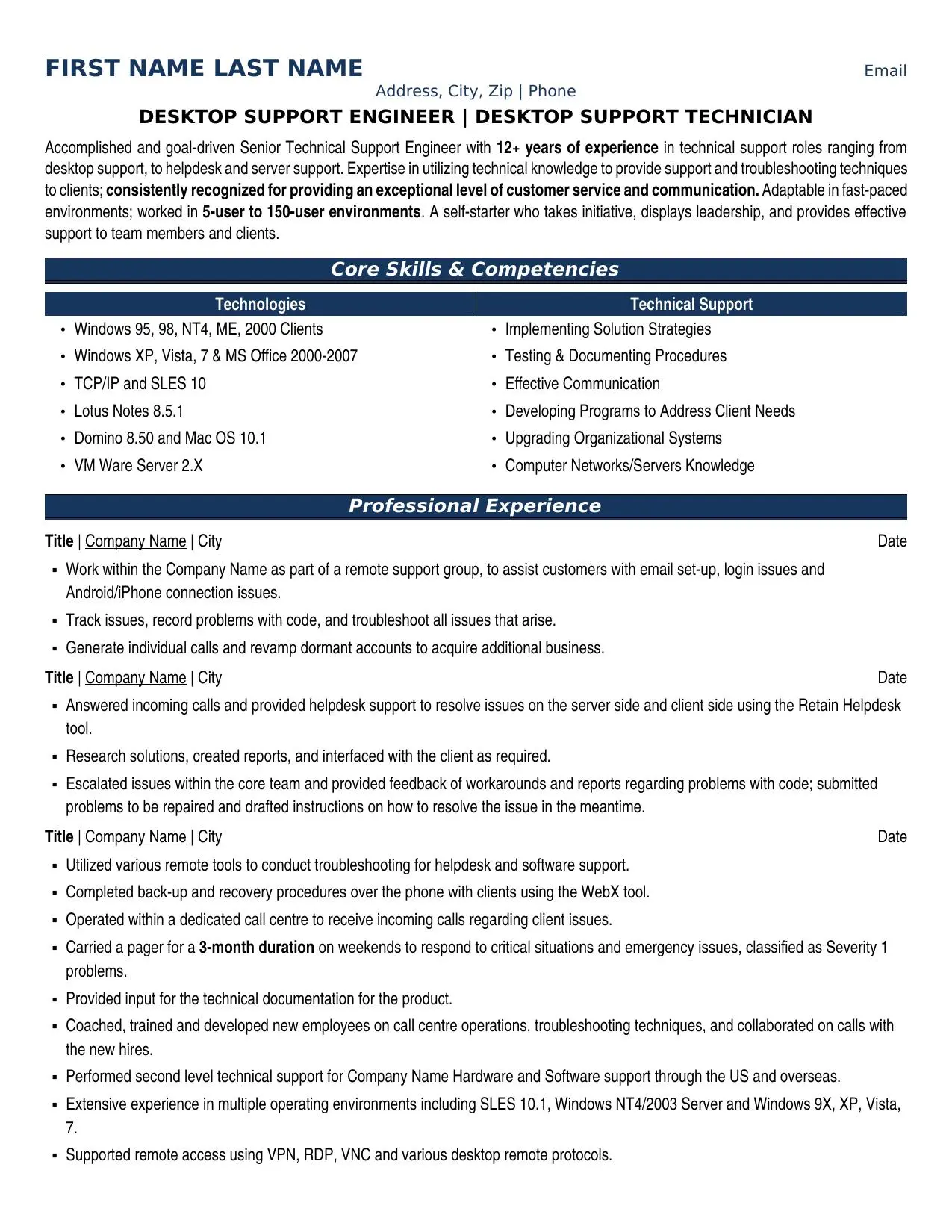
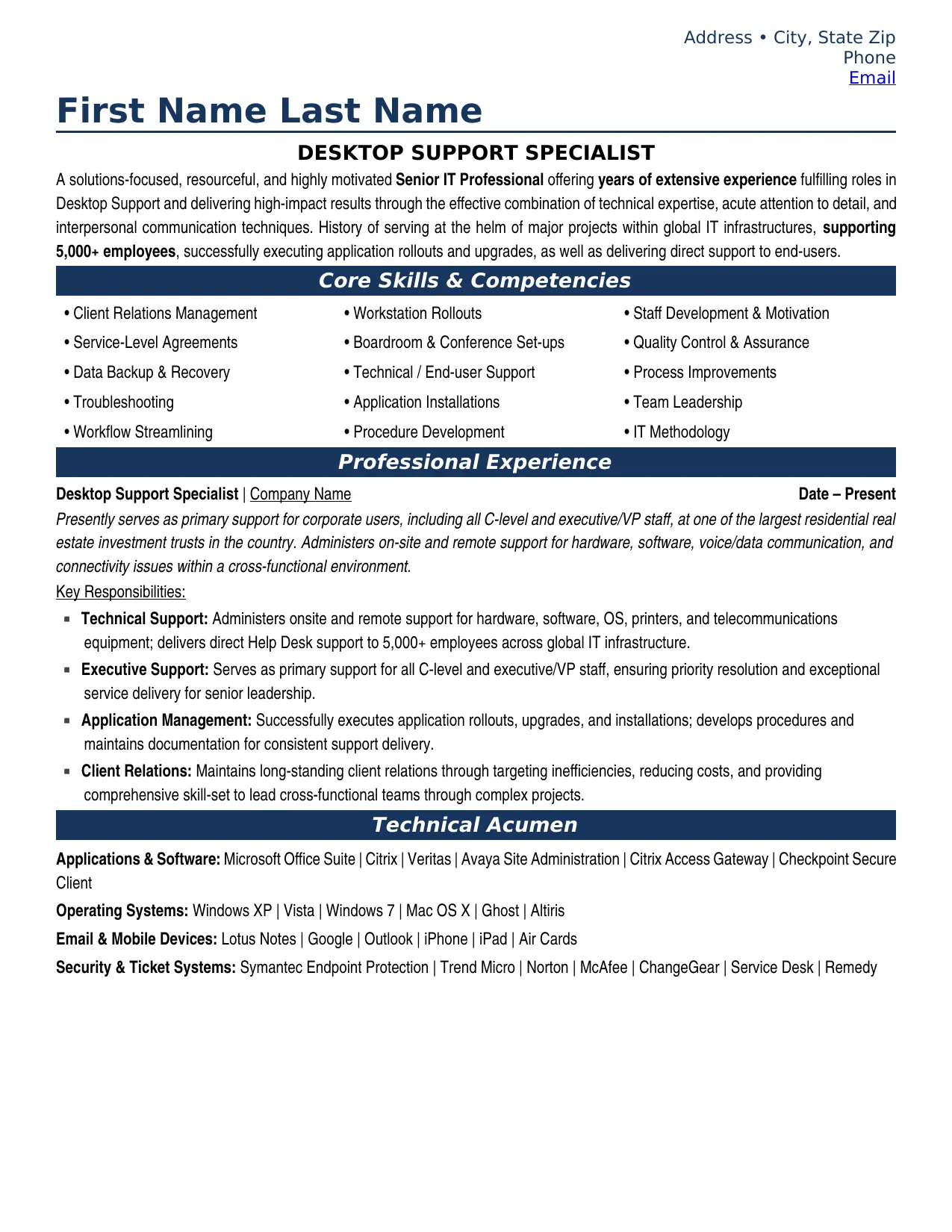
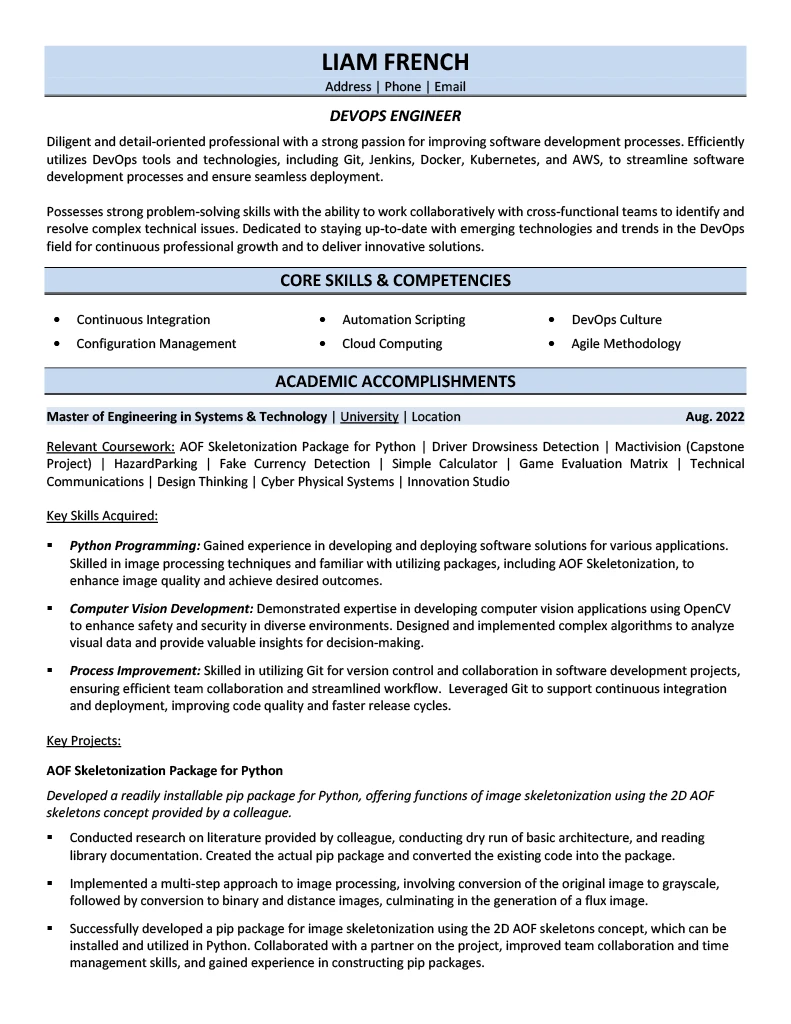
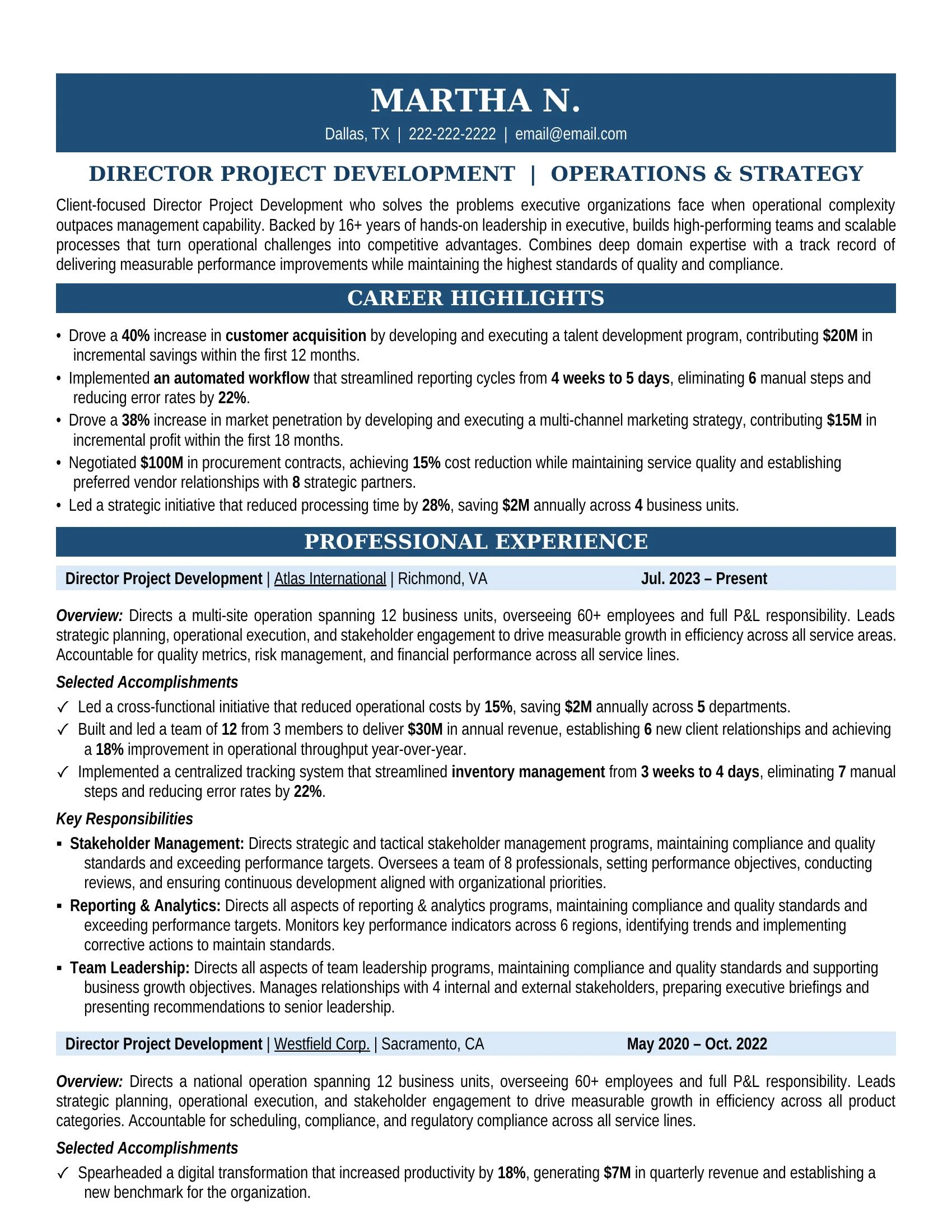
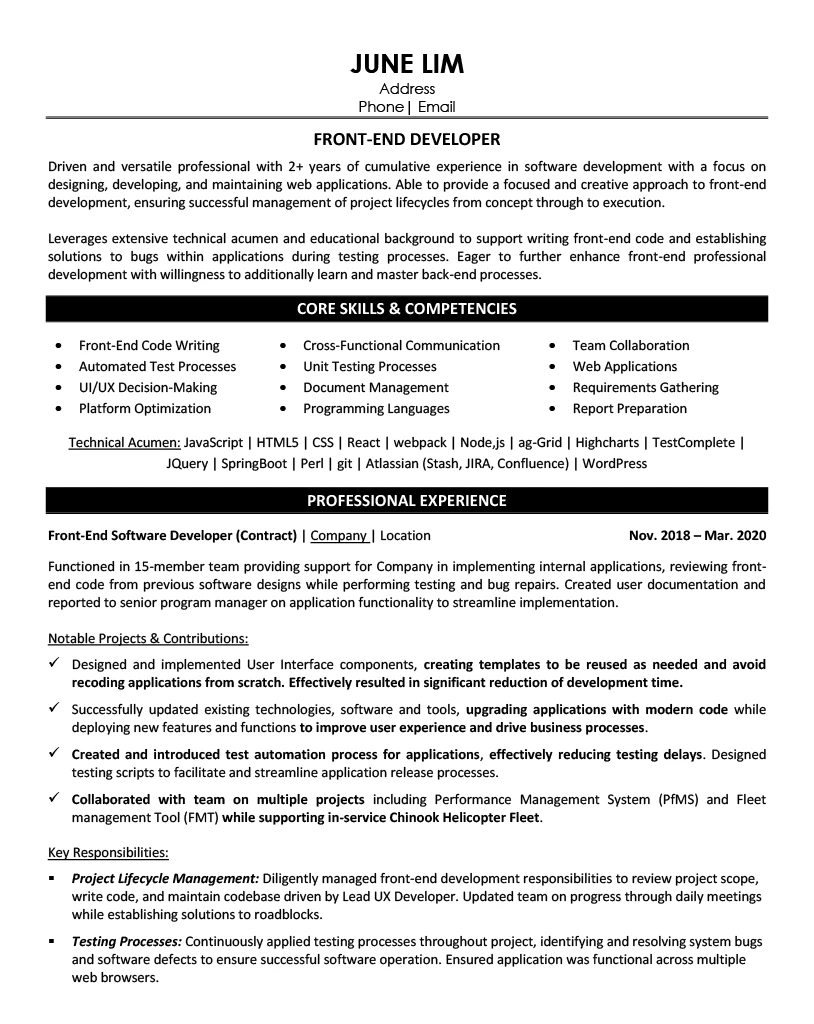
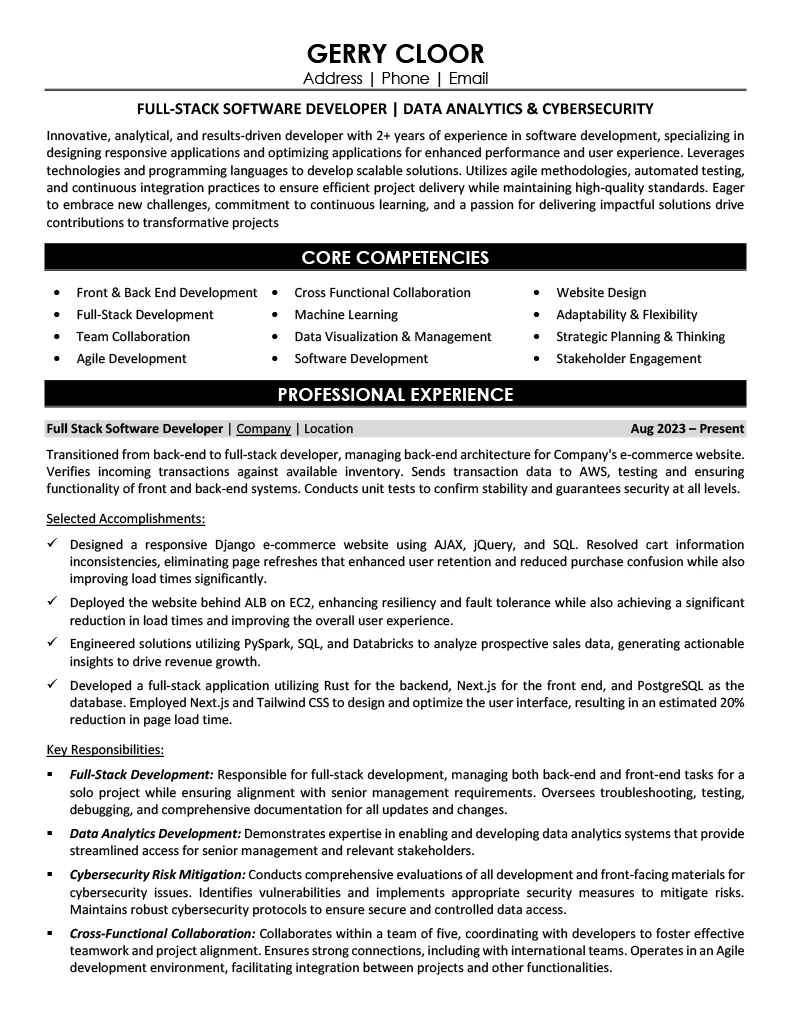
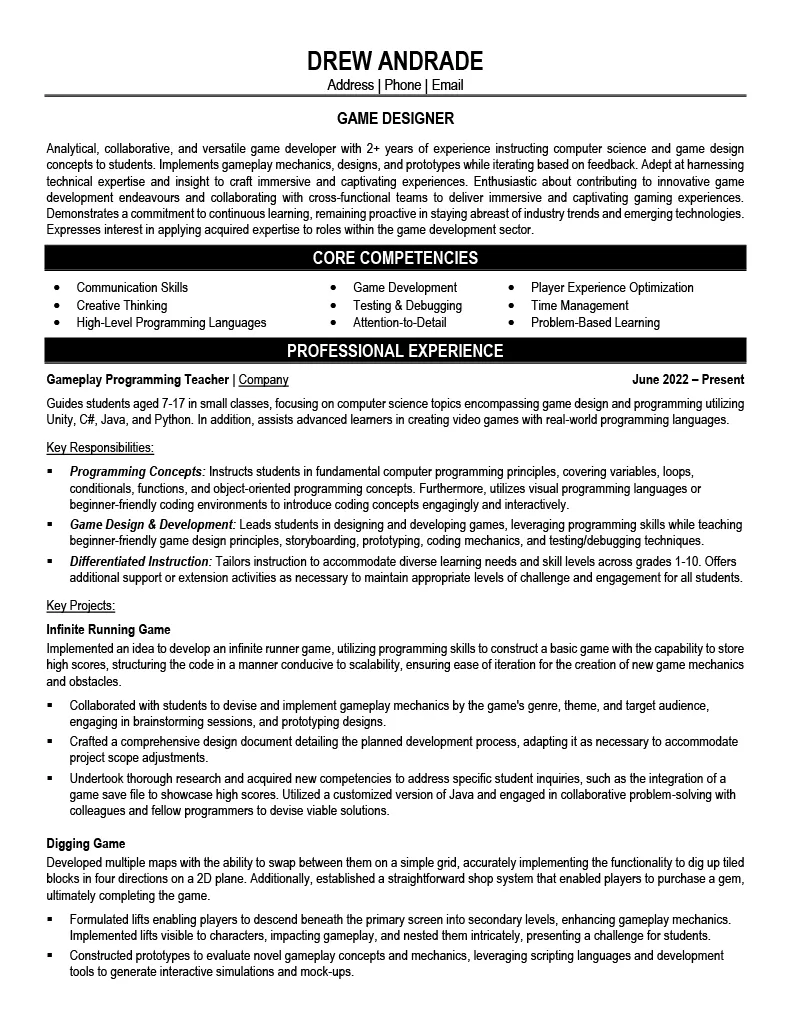
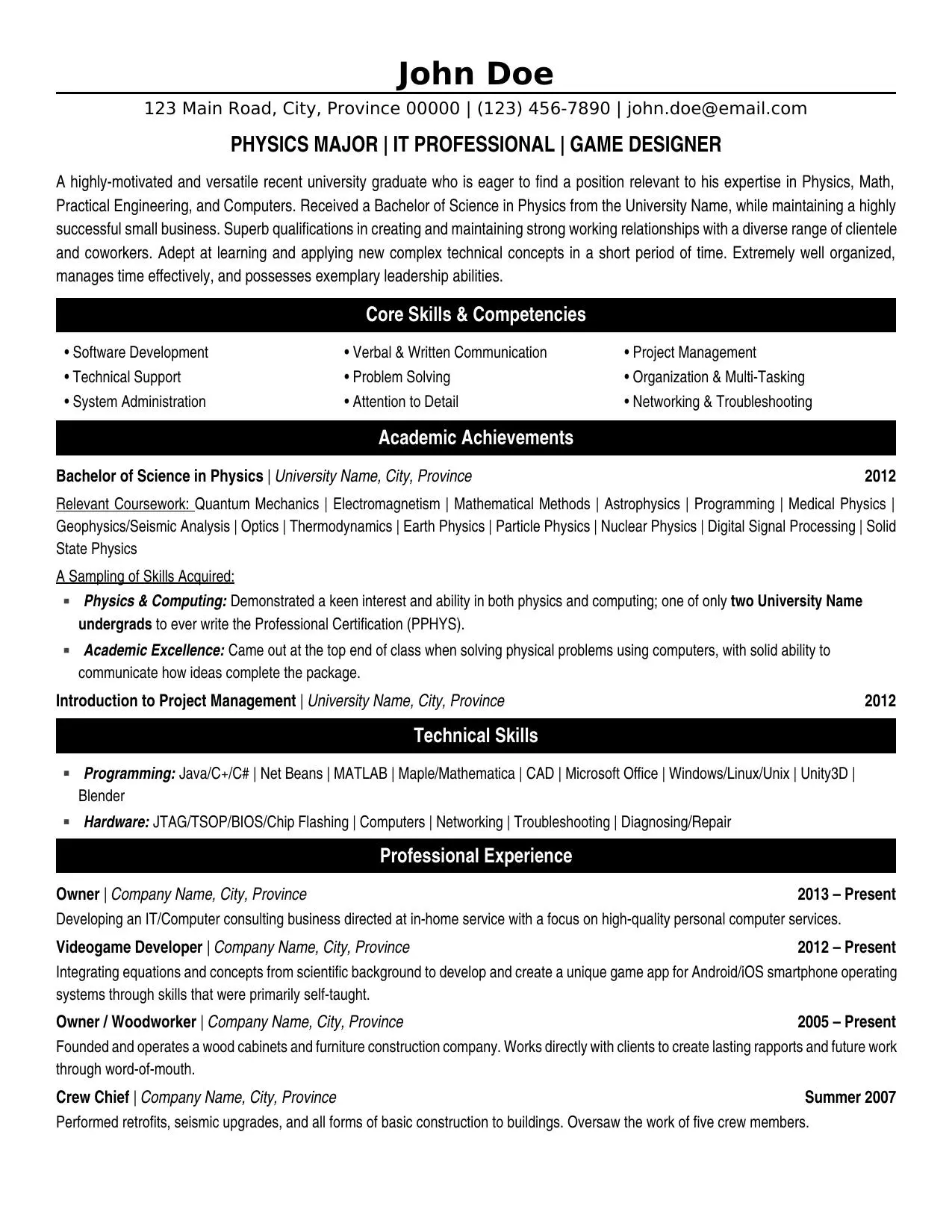
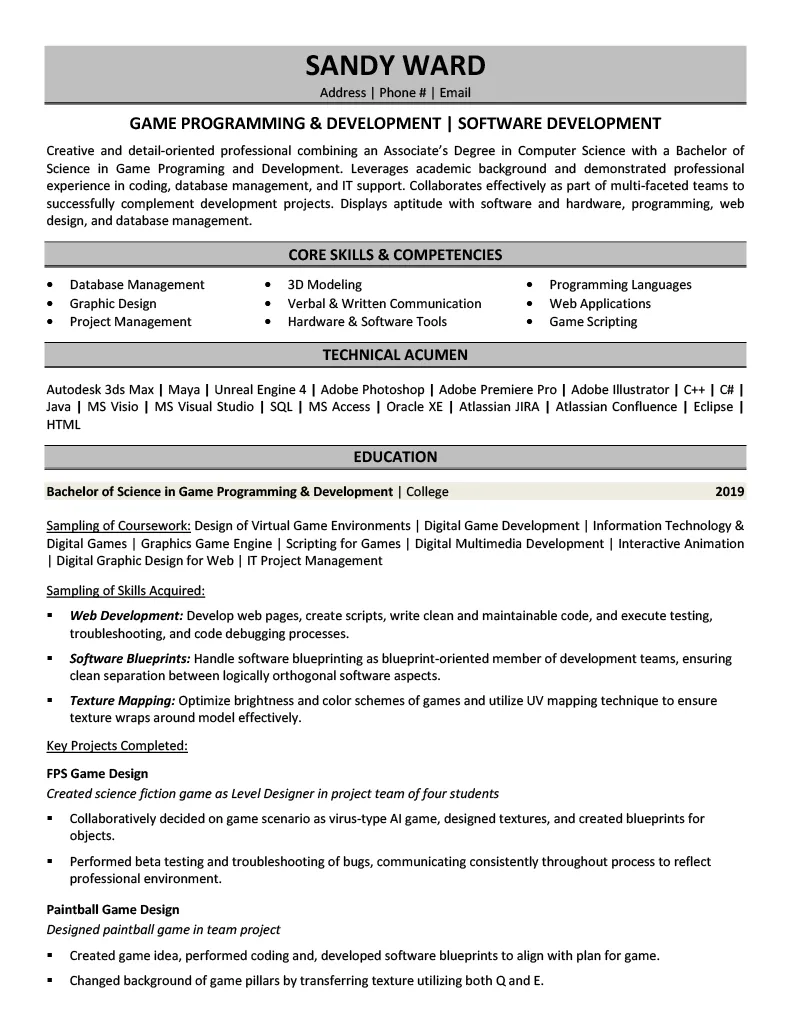
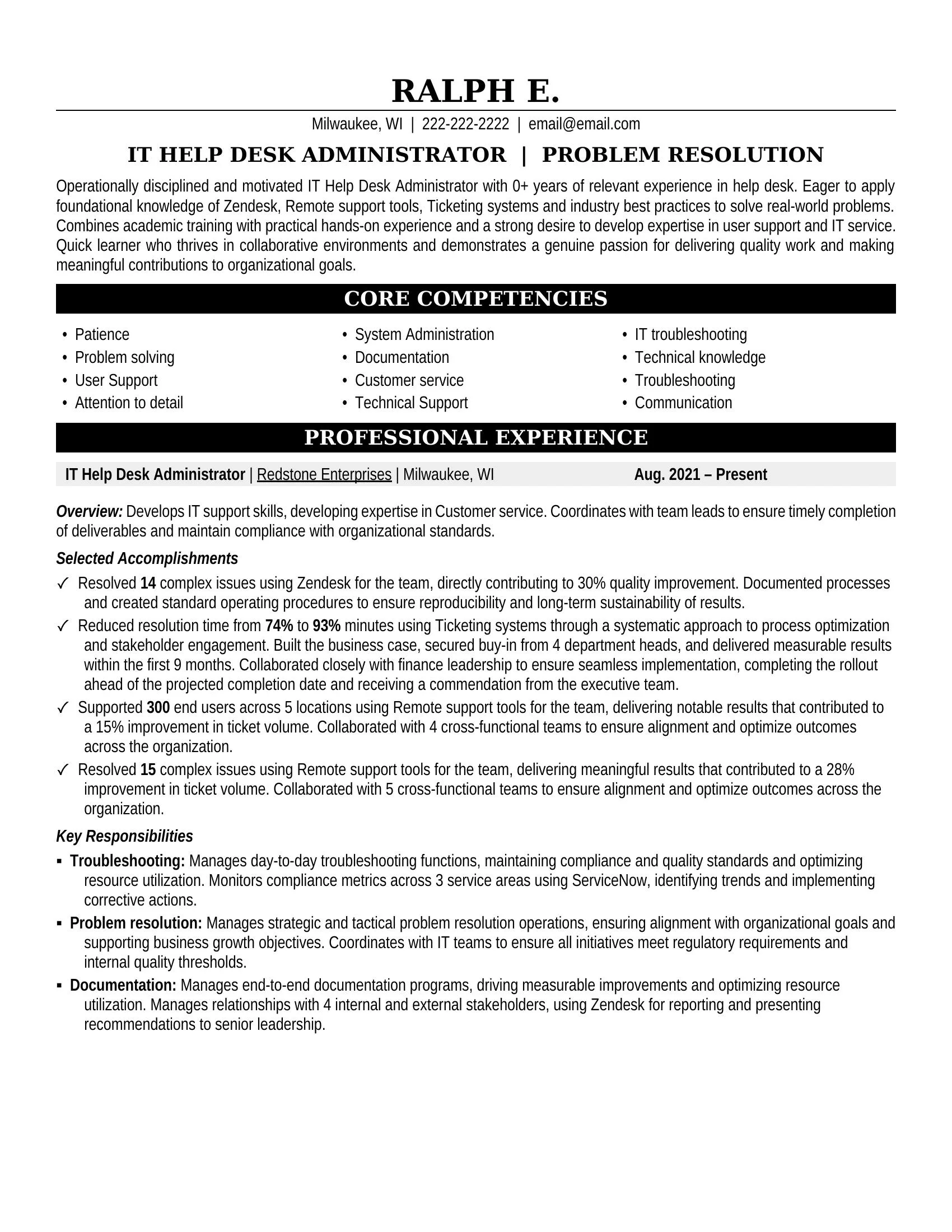
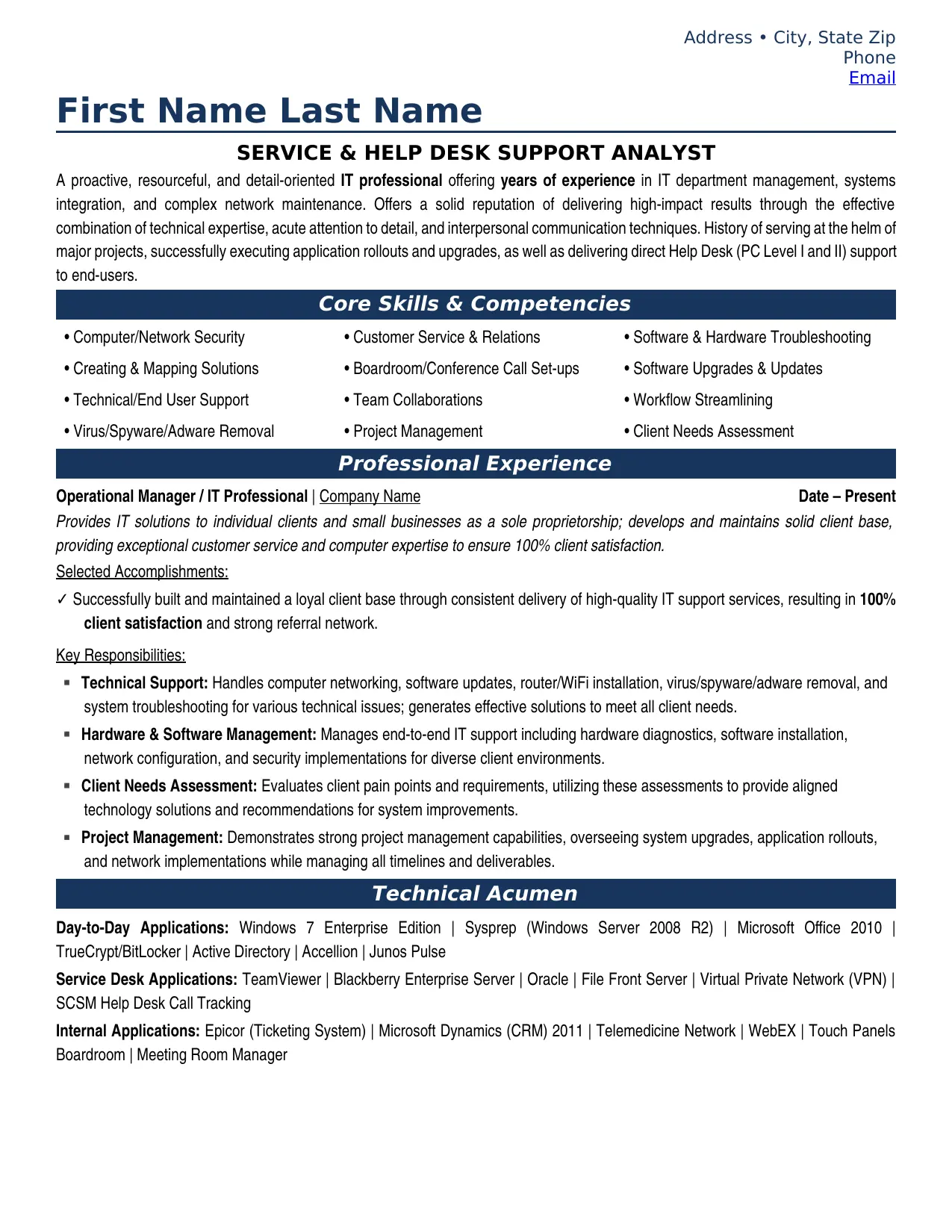
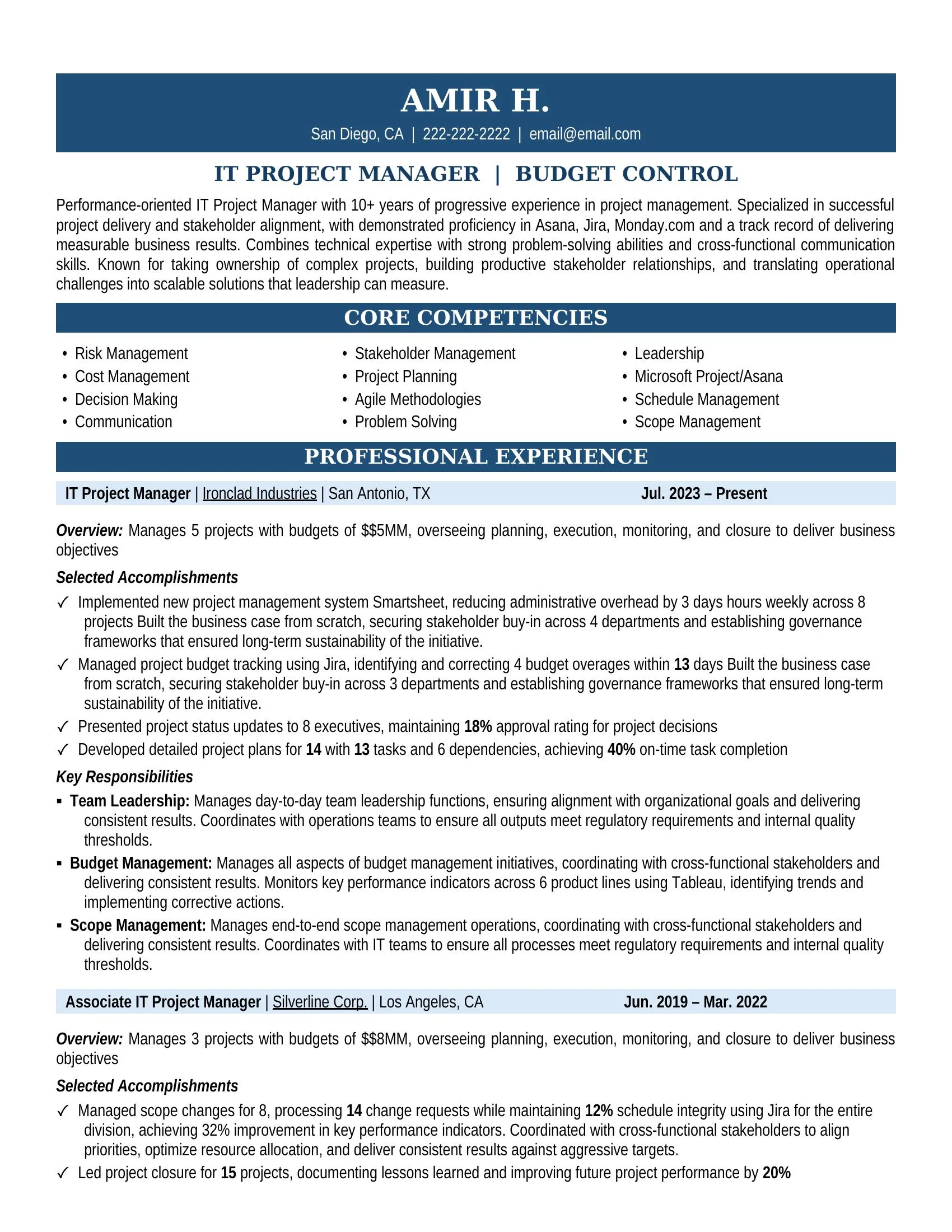
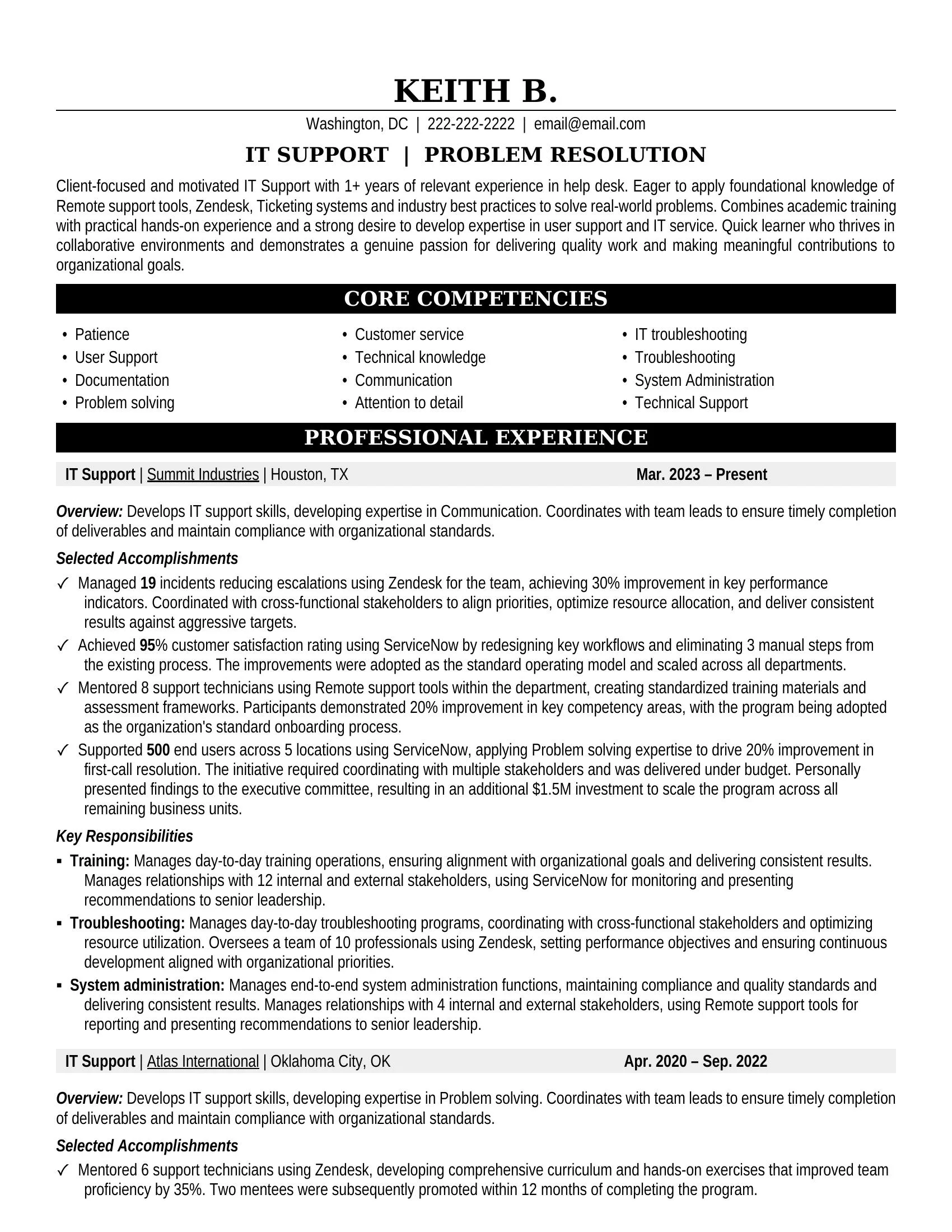
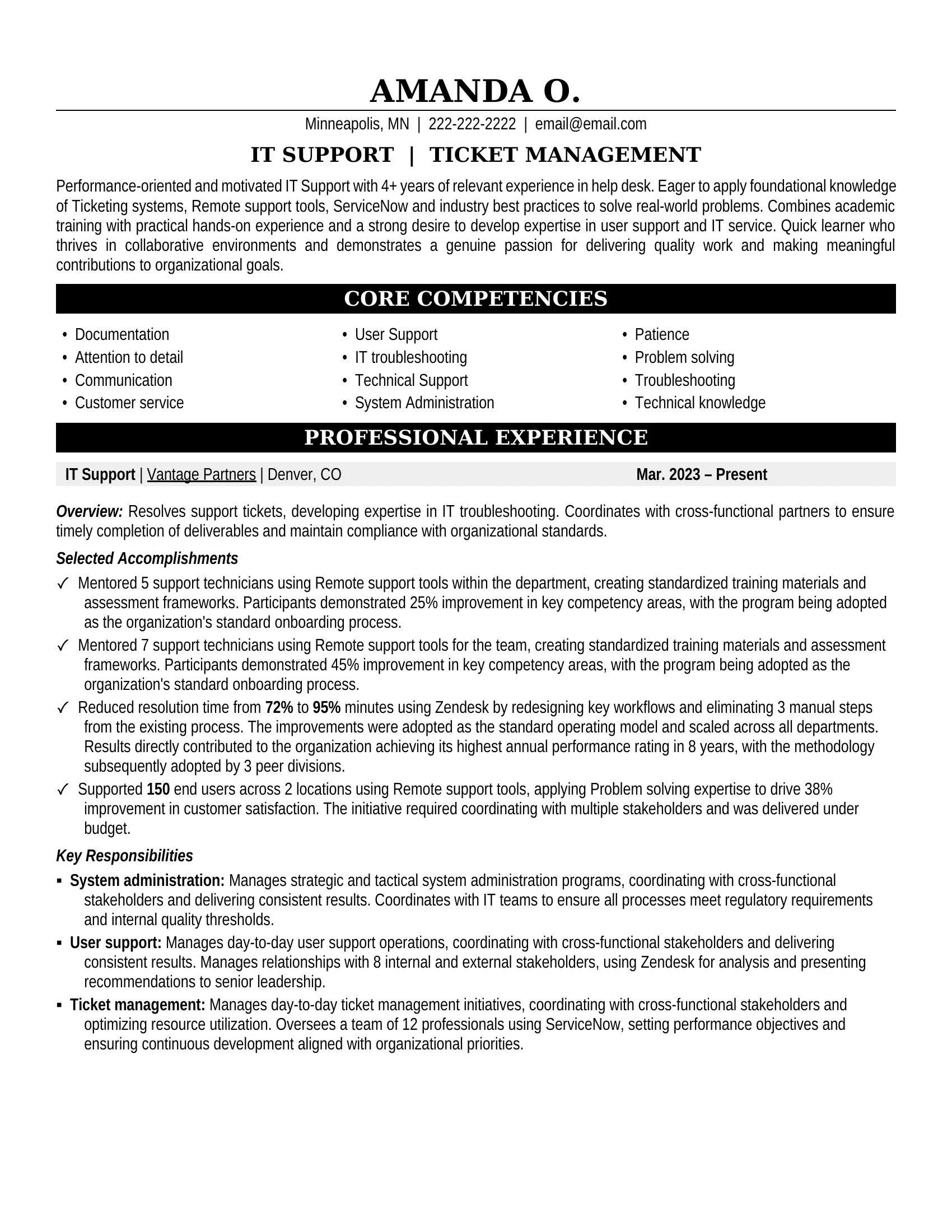
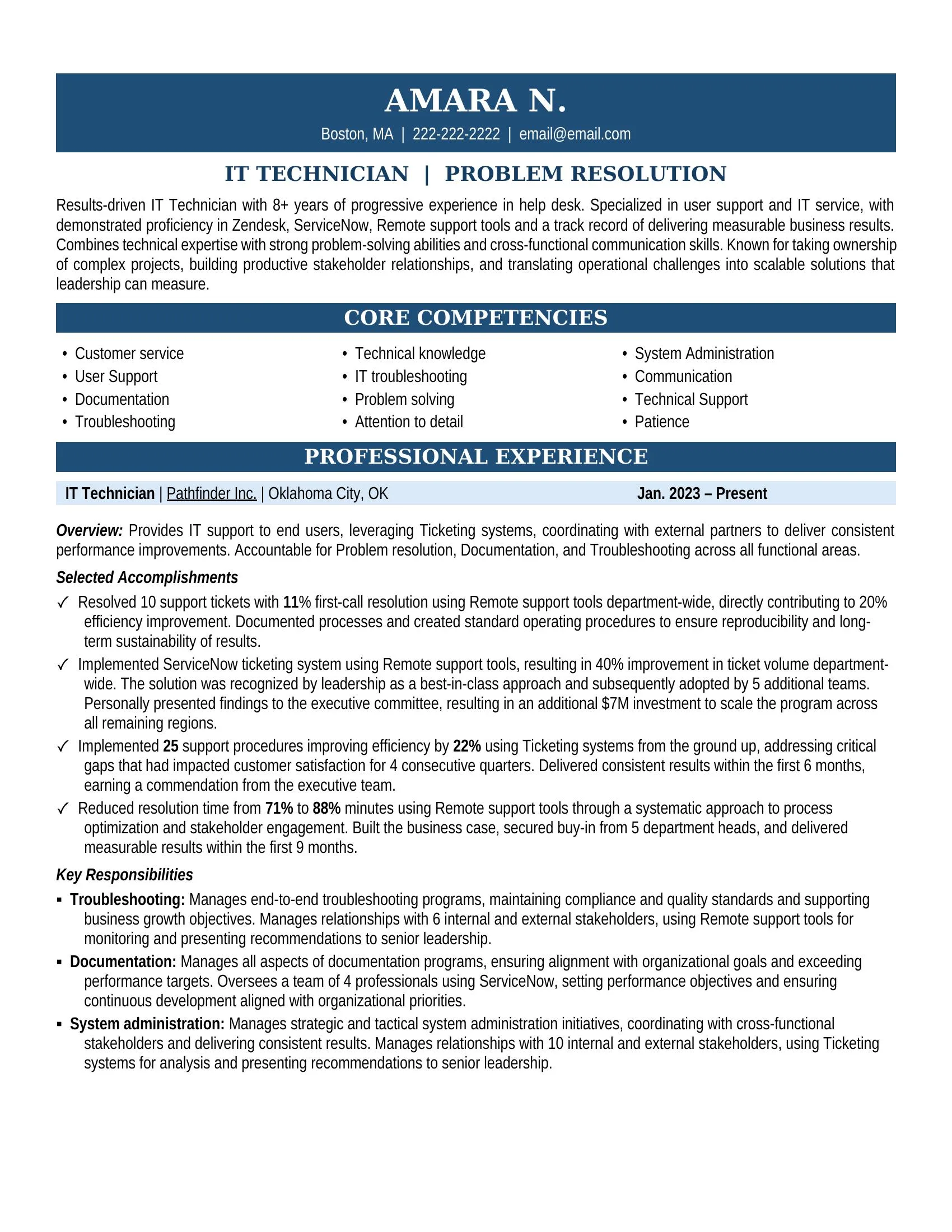
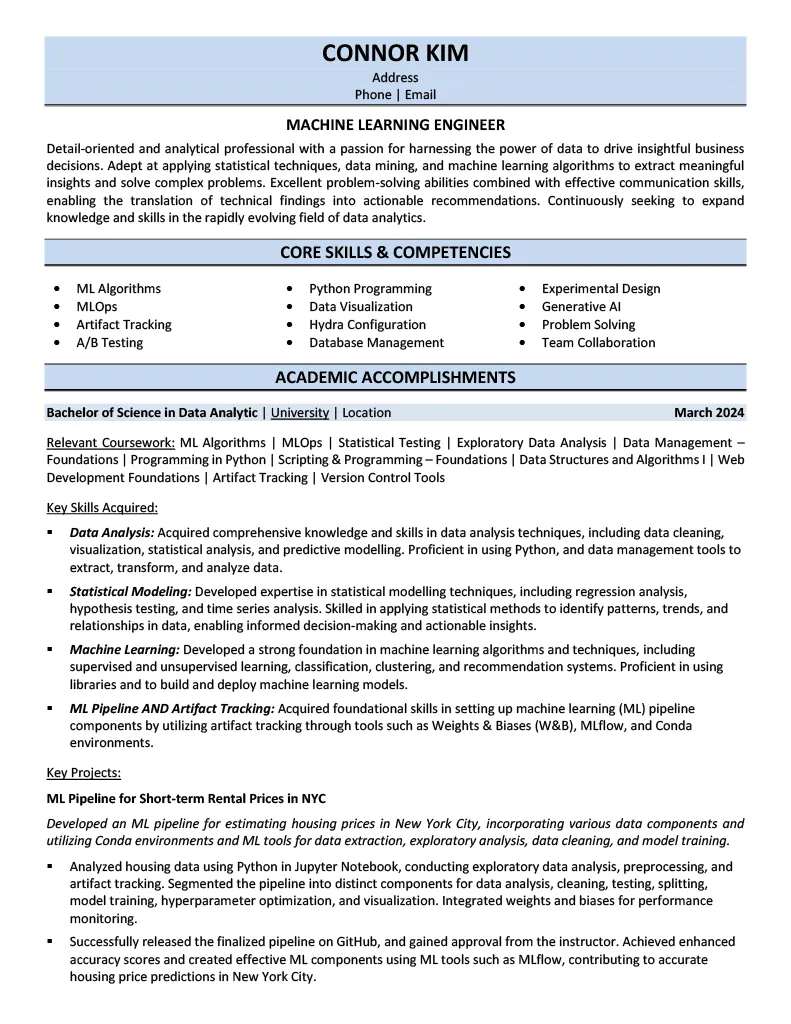
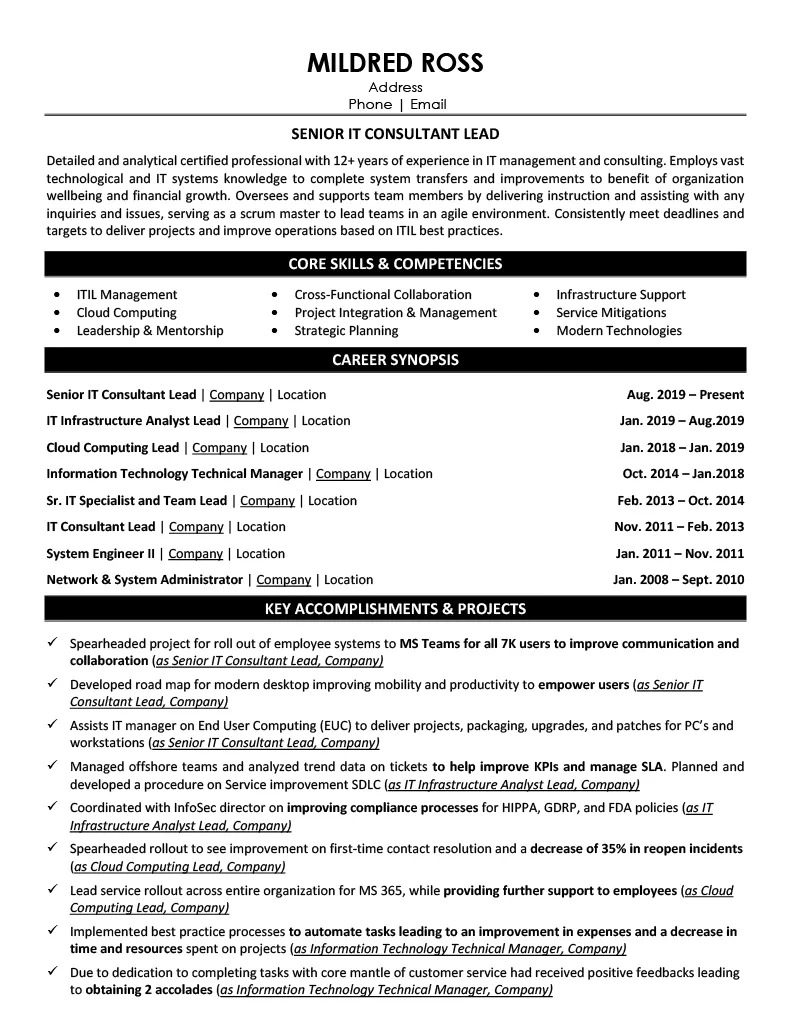
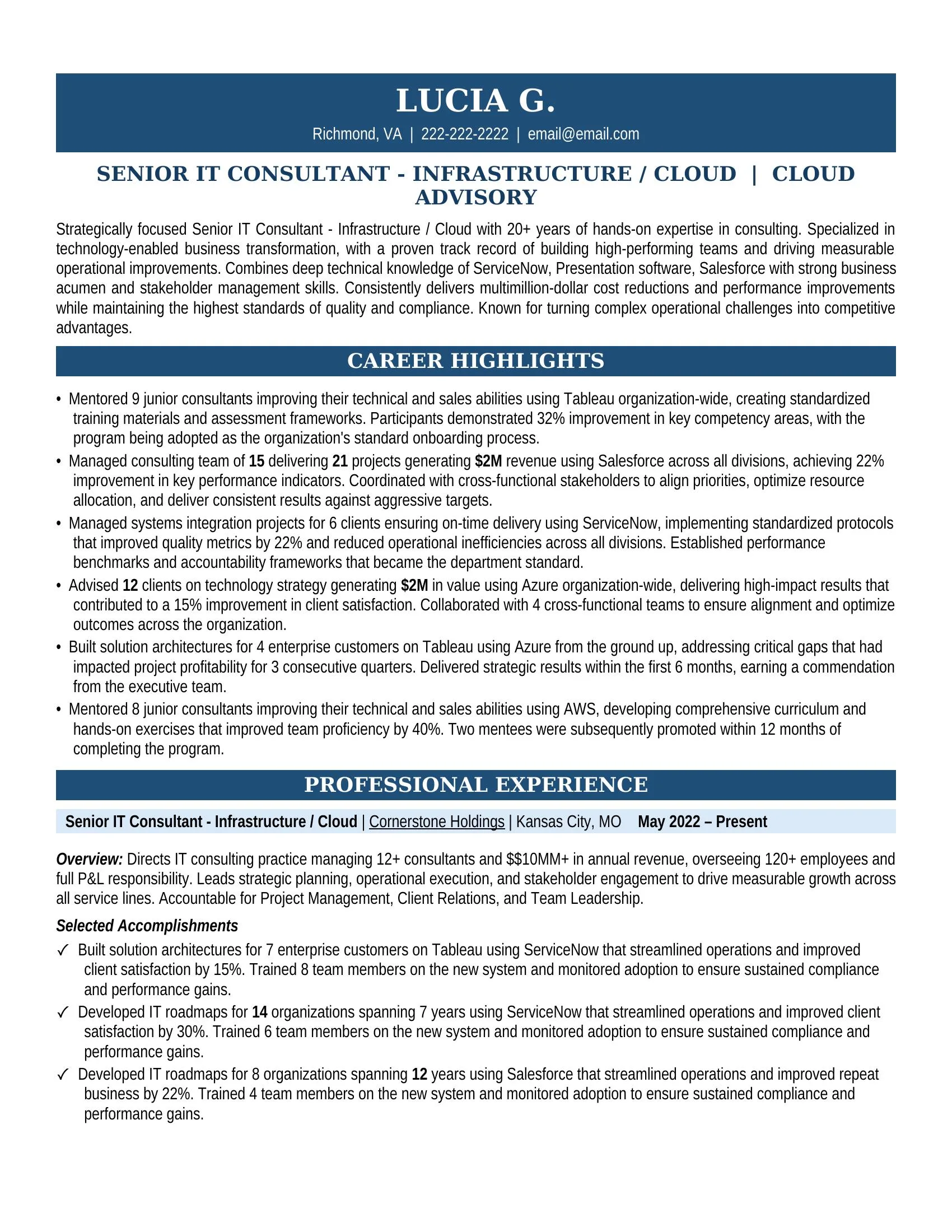
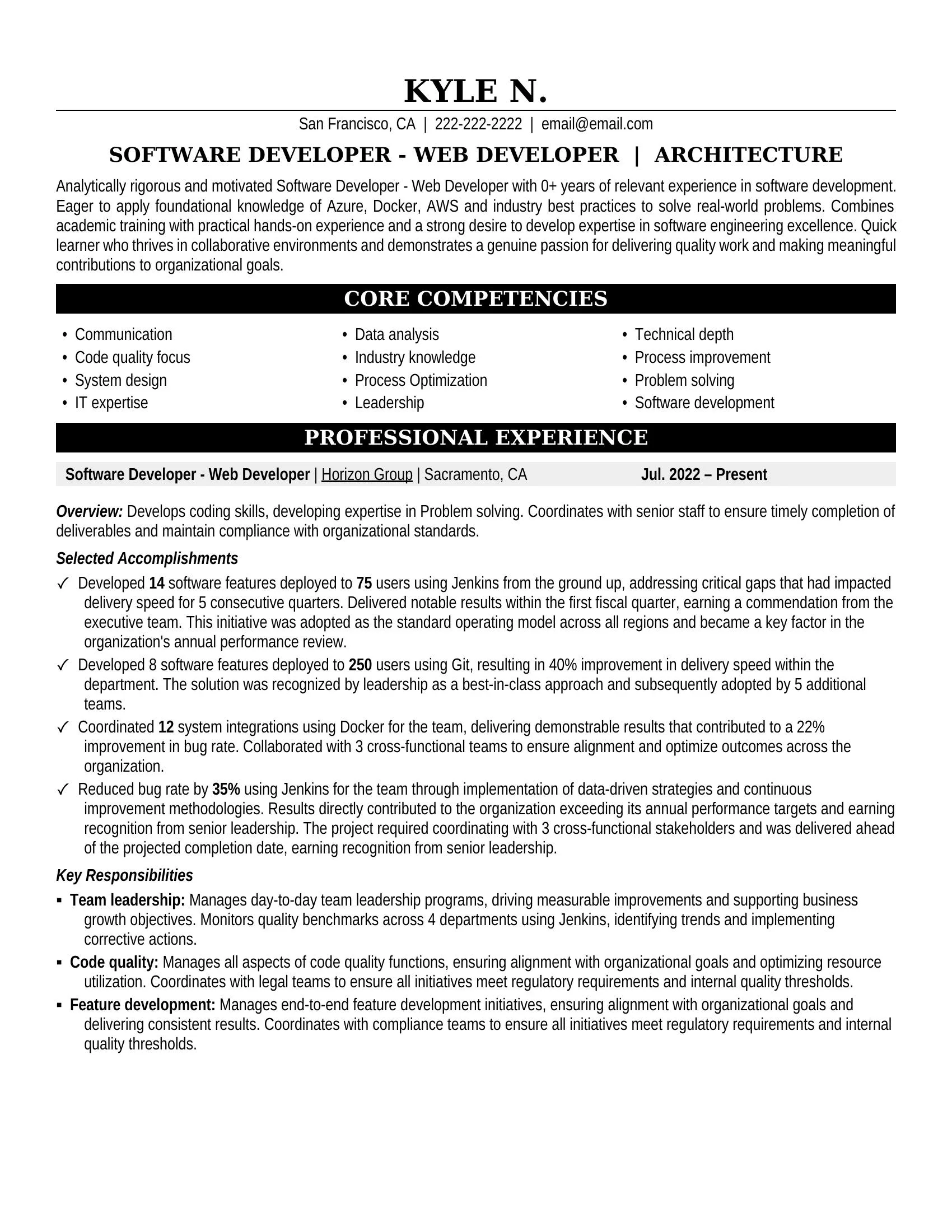
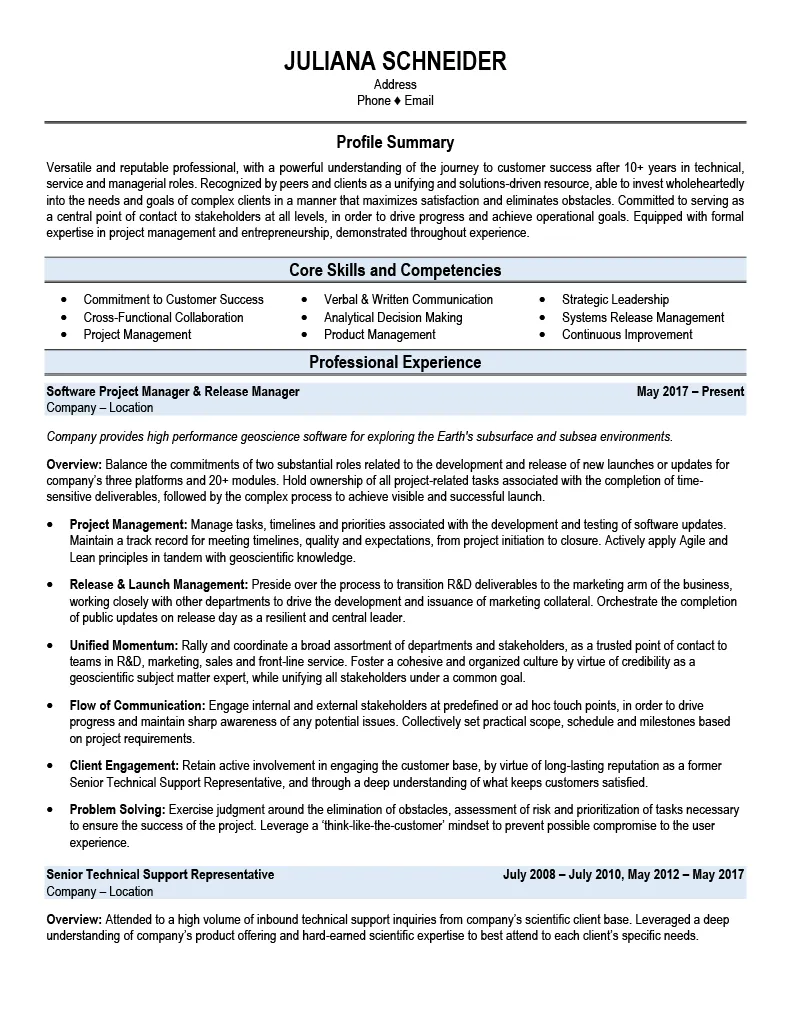
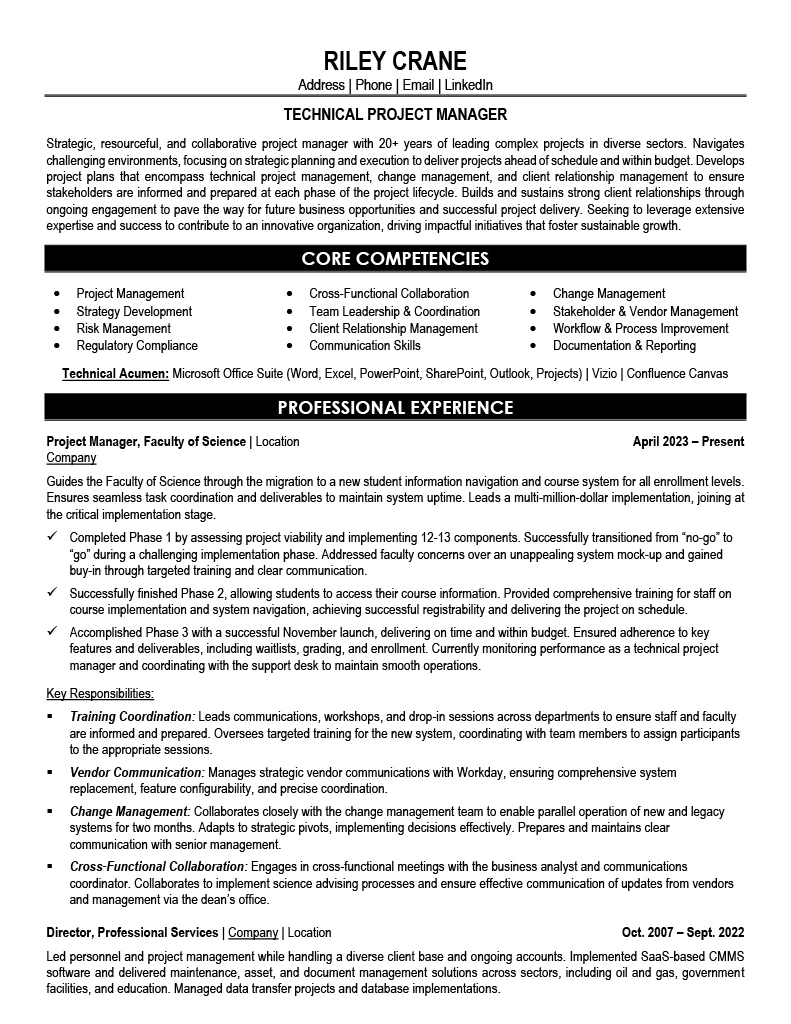
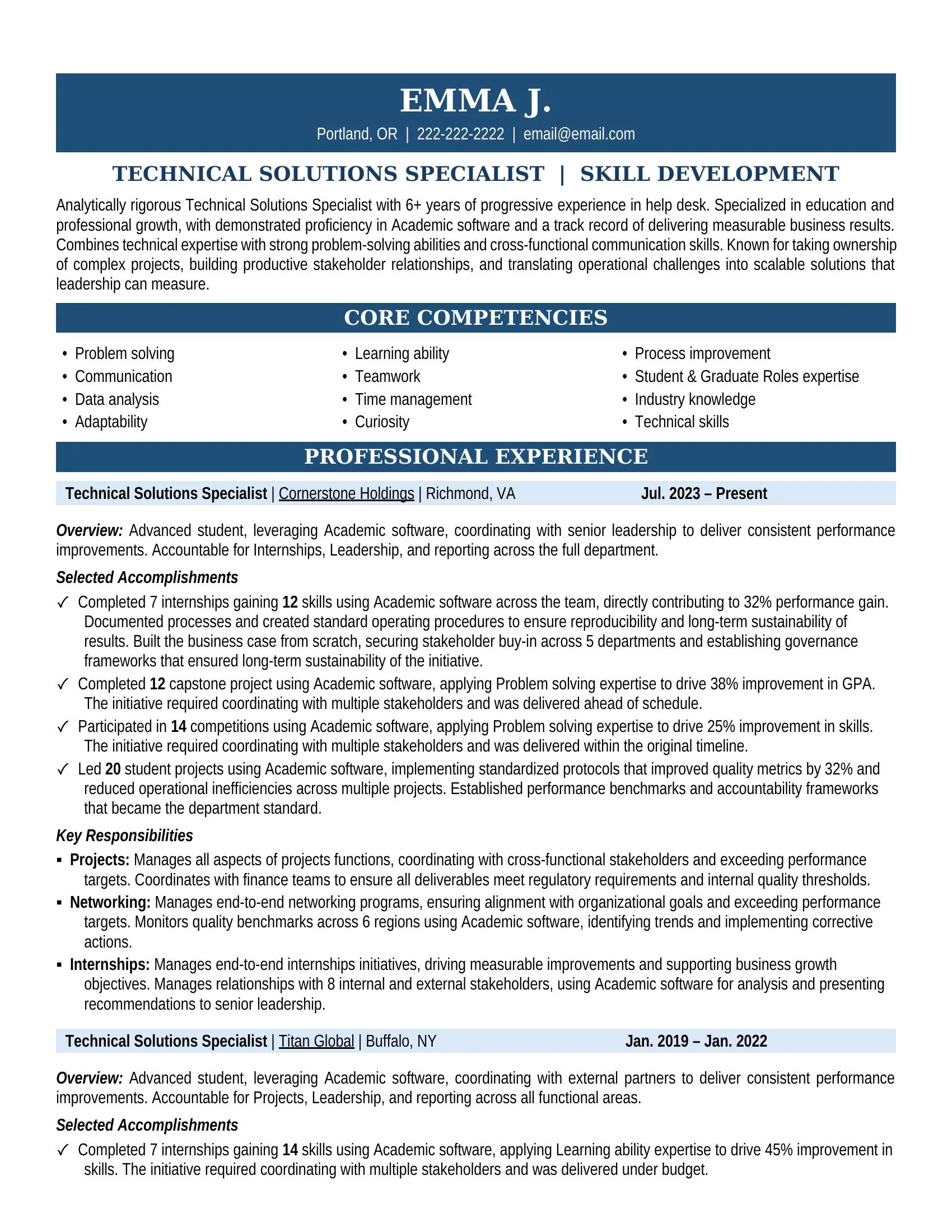
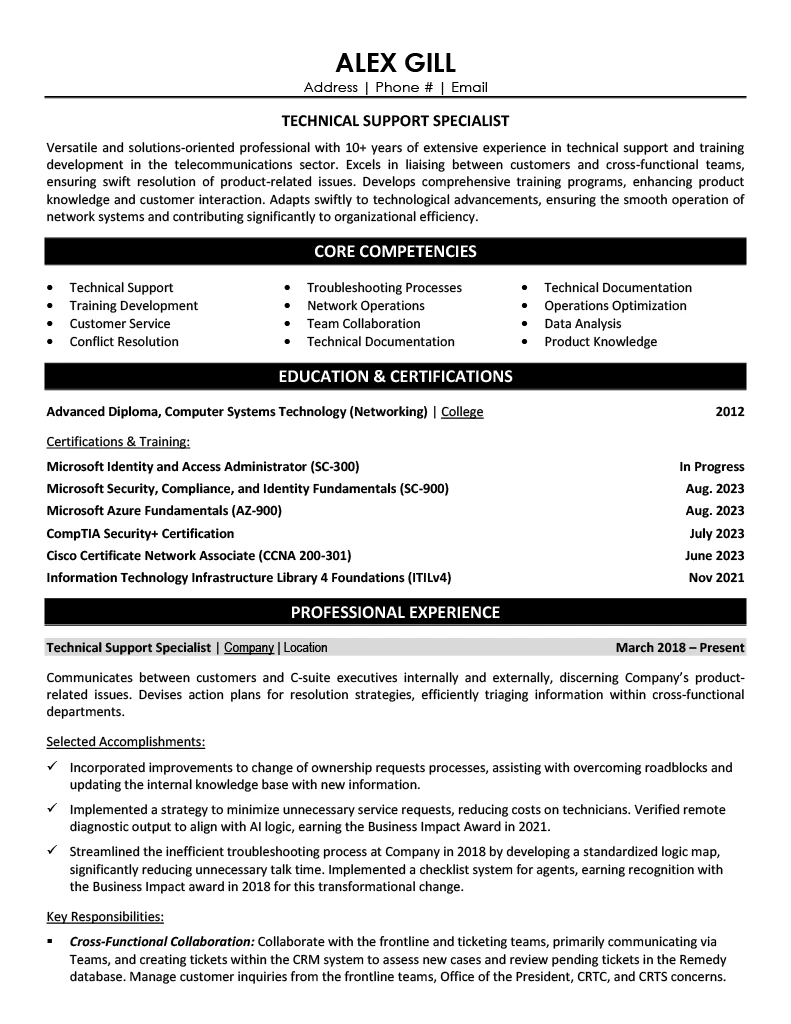
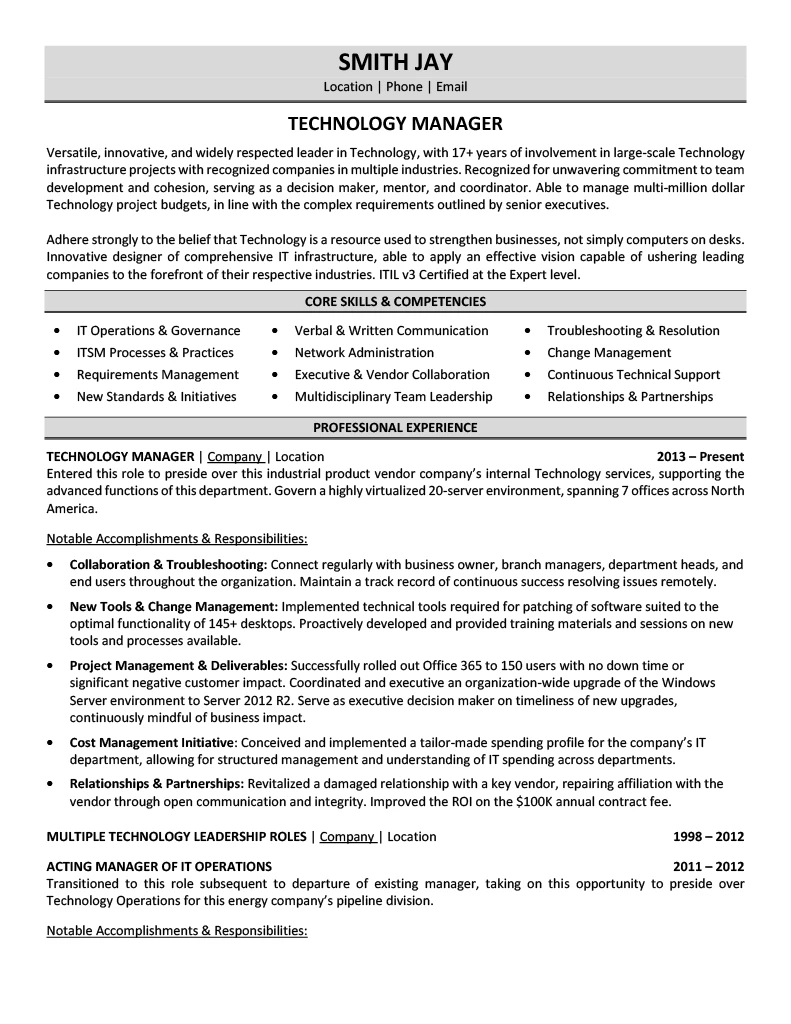
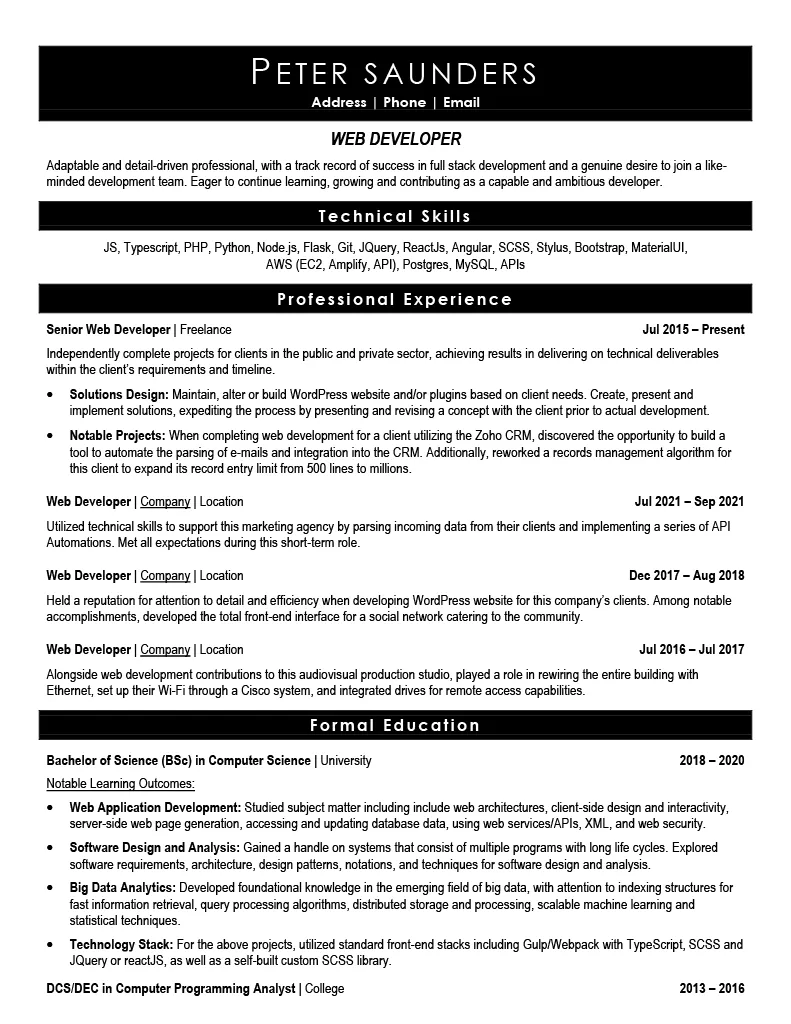
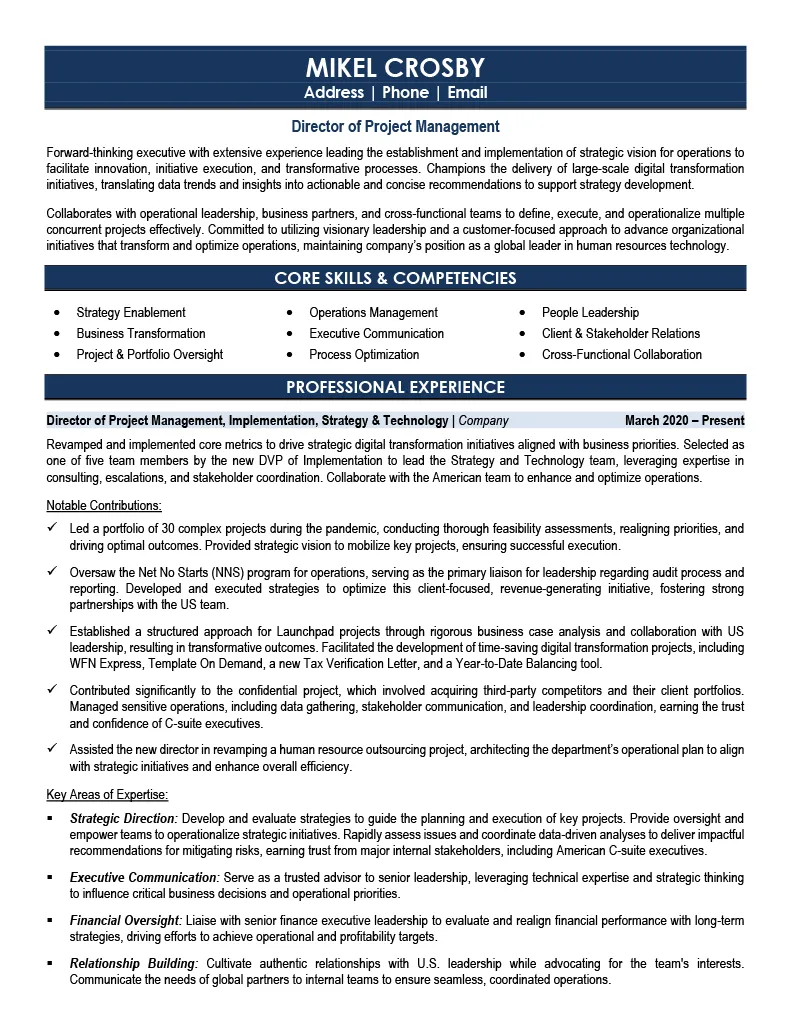
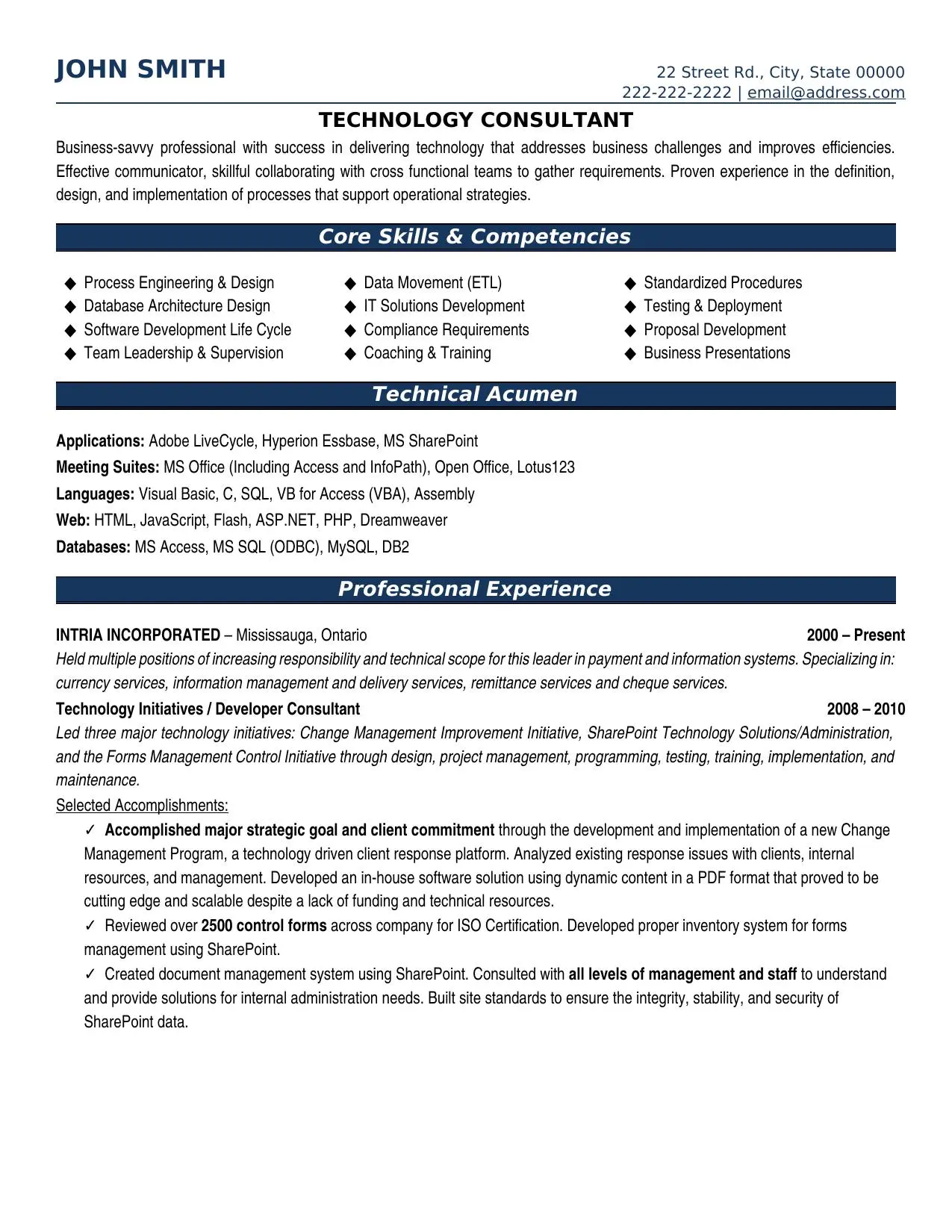
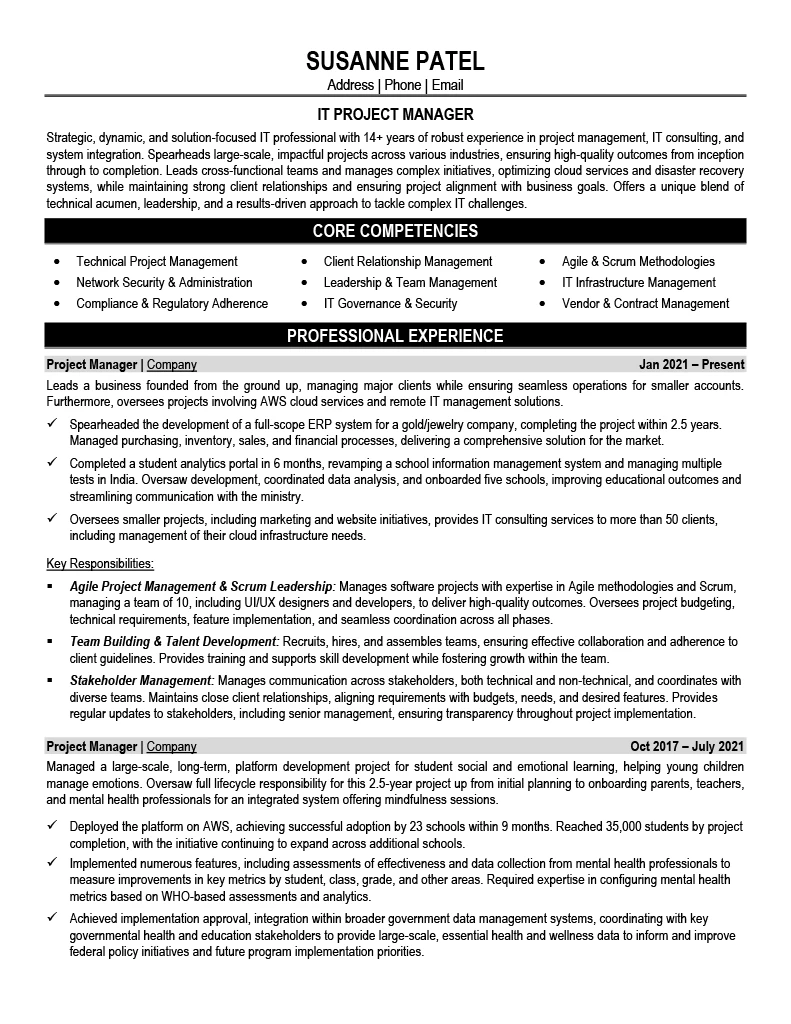
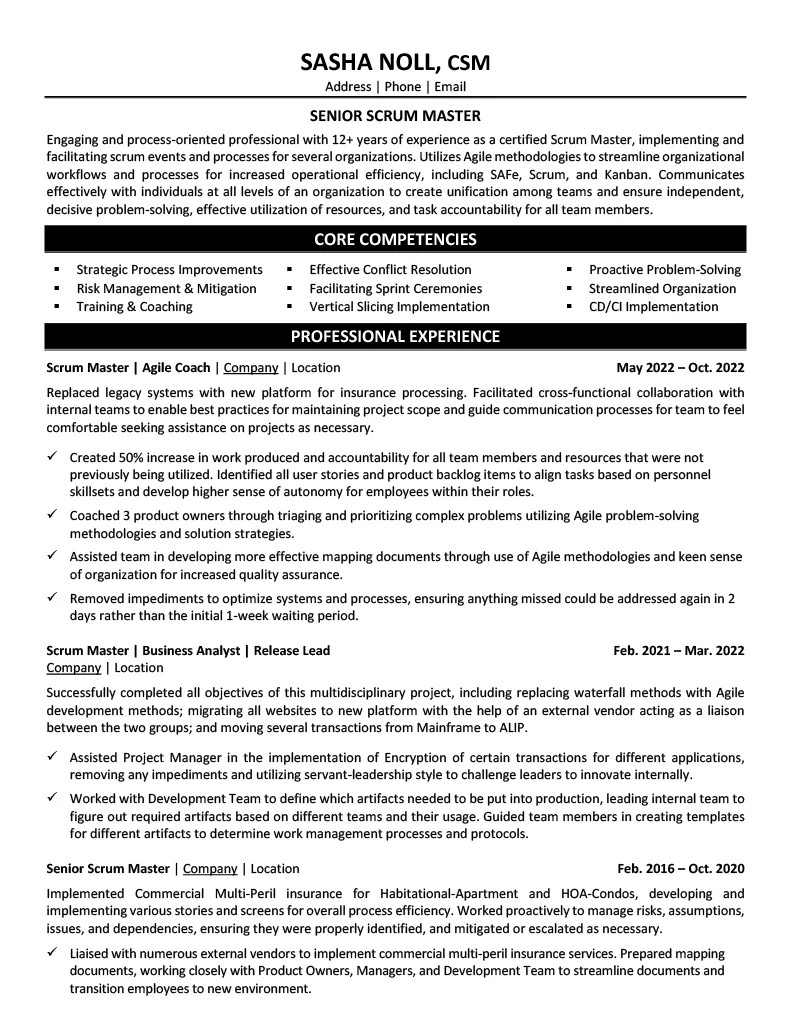
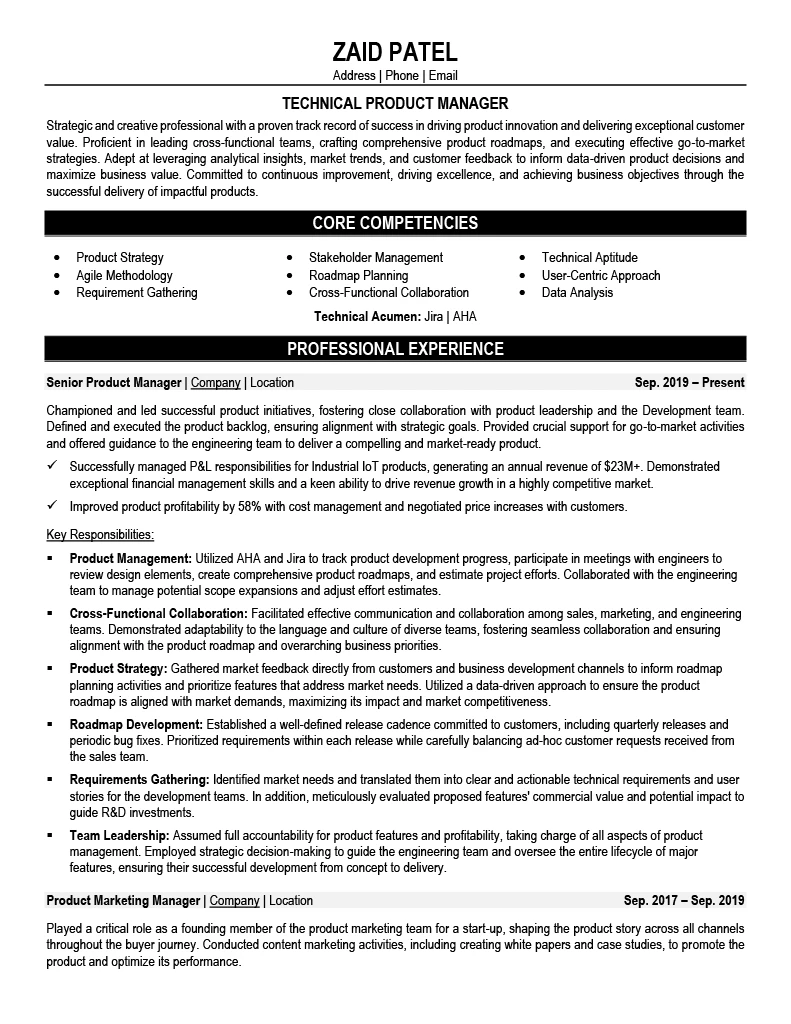
When a hiring manager reads your information technology resume, they should think:
"This person has solved the exact problems we're facing."
What systems have you built or maintained? We probe the scale, complexity, and tech stack.
"Tell me about the architecture of the last system you built..."What was the performance improvement? The uptime achieved? We connect your code to business impact.
"How much faster/cheaper/more reliable did you make it?"What technologies, frameworks, and tools? This is where your technical expertise becomes visible.
"Walk me through the technologies you used and why..."What teams did you lead? What processes did you implement to improve development velocity?
"How did you reduce deployment time or improve code quality?"See how our interview process uncovered achievements and turned them into interview-winning proof.
Get Your Information Technology Resume Written
Information Technology jobs average 52 applicants per position. You're competing against 1,040 candidates. Our information technology resume examples show how to stand out.
Data based on LinkedIn job postings. Updated Mar 3, 2026.
Here's the math most job seekers don't do:
Your information technology resume must stand out against 1,040 professionals.
What makes you different is the story behind the projects.
Get Your Information Technology Resume WrittenInformation Technology Professionals Using Our Resume Templates Work At
Every information technology resume example on this page was written through our 1-on-1 interview process. We extract achievements you'd never think to include.
We identify keywords and achievements that get information technology resumes noticed.
Targeted questions about your information technology projects and results.
Transform responsibilities into quantified achievements.
ATS-optimized resume in 3 business days + 14-day revisions.
80% of information technology positions are never advertised. Get your resume directly into the hands of recruiters filling confidential searches.
When you purchase our Resume Distribution service, your resume goes to 800+ recruiters specializing in information technology — included in Advanced & Ultimate packages.
| Agency | Location |
|---|---|
|
IN
Insight Global
IT Recruiting
|
Austin, TX |
|
HA
Hays Technology
Tech Recruitment
|
New York, NY |
|
MO
Modis
IT Professionals
|
Atlanta, GA |
|
CY
CyberCoders
Tech Talent
|
Irvine, CA |
|
MO
Motion Recruitment
Software
|
Boston, MA |
Information technology averages 52 applicants per position across 45,000 active job postings — but competition varies dramatically by specialty and level. Machine Learning Engineer positions are the most competitive at 77 applicants per opening. Computer Science Student entry-level roles draw 71. Senior Technology Executive and IT Security roles each see 70. CIO positions draw 68, Senior Systems Analyst averages 66, and Cybersecurity Analyst, Data Operations Coordinator, CTO, Director IT Operations, IT Director, Network IT Analyst, and Junior Network Administrator all cluster around 64-65. Cloud Engineer and Systems & Network Admin draw 58 each, Data Scientist sees 57, Director of IT averages 56, and VP of IT draws 52. Apply to 20 positions in a typical 30-day search and you're one of roughly 1,040 candidates competing. In IT, the resume that proves results, strategic thinking, and business alignment beats "managed IT infrastructure" every time.
Because IT achievements are infrastructure transformations, security outcomes, and business enablement results that questionnaires never capture. A CTO who "led organization" could describe anyone with a corner office. Our interview process extracts the track record of results, strategic thinking, leadership ability, financial acumen, and industry expertise that prove executive-level impact — in a 64-applicant field. A Director IT Operations who "supported system administration" becomes someone with documented system uptime improvements, incident resolution outcomes, infrastructure design decisions, cloud migration results, and security posture enhancements — at 64 applicants per opening. A VP of IT who "led function as VP" becomes someone with quantified leadership track record, strategic outcomes, team development results, business impact, and executive presence — at 52 applicants. An IT Manager who "led IT function" becomes someone with measurable IT strategy execution, team leadership outcomes, and business alignment results. A questionnaire reduces all of them to "IT professional with 15 years experience." The interview captures the infrastructure scale, the transformation outcomes, and the business impact.
They're screening for business outcomes and technology leadership — not certification lists or platform inventories. For C-suite (CTO/CIO): track record of results, strategic thinking, leadership ability, financial acumen, and integrity — CTO roles draw 64 applicants and CIO roles draw 68, each competing with seasoned executives. For IT Directors: IT strategy execution, team leadership, and business alignment — Director of IT draws 56, Director IT Operations 64, Director of Technology 49, and IT Infrastructure Director 48 applicants. For Cybersecurity and Security: security expertise, incident response capability, and compliance outcomes — Cybersecurity Analyst draws 65 and IT Security 70 applicants. For Data and ML roles: database expertise, performance outcomes, and model deployment impact — ML Engineer draws 77, Data Scientist 57. For Systems and Network: uptime performance, infrastructure design, and operational efficiency — Senior Systems Analyst draws 66, Network IT Analyst 64. For IT Managers: IT strategy, team leadership, and business alignment at 49 applicants. ATS systems at companies like Google, Microsoft, and Amazon keyword-scan for certifications (AWS/Azure/GCP, CISSP, CCNA/CCNP, PMP), platforms, and technical competencies before a hiring manager reviews your resume.
It matters fundamentally — these are different technology tracks evaluated by completely different criteria. IT leadership and executives prove strategic impact through results track record, financial acumen, business alignment, and organizational transformation — CTO draws 64 applicants, CIO 68, VP of IT 52, and Senior Tech Executive 70, each competing with candidates who bring enterprise-scale experience. Cybersecurity and IT Security prove protection capability through incident response metrics, compliance outcomes, threat detection, and security architecture — at 65-70 applicants per opening. Data and ML prove analytical impact through model deployment, pipeline engineering, and business intelligence outcomes — ML Engineer draws 77 and Data Scientist 57 applicants. Infrastructure and operations prove reliability through uptime, incident resolution, infrastructure design, and cloud expertise — Director IT Ops draws 64 applicants. Systems and network prove operational foundation through administration outcomes, network performance, and user support scale — at 48-66 applicants. During your interview, our writers identify your technology specialty and extract the infrastructure scale, security posture, and business outcomes that hiring managers evaluate.
Our IT resume packages are based on career level and interview depth — from a 30-minute early career session to a 90-minute executive interview. When evaluating price, consider what the number actually buys. A company charging $99: after the company takes its margin, the writer earns $40-60 — enough for about 45 minutes of total work including writing. That's a questionnaire reformat that produces "managed IT infrastructure and supported users." Our Professional-level interview alone is 60 minutes, followed by job posting analysis, drafting, and revisions — producing quantified system uptime improvements, infrastructure transformation outcomes, and business alignment results that prove impact in a field averaging 52 applicants per position. View current packages and pricing.
We offer a 90-Day Interview Guarantee. If you don't land interviews within 90 days of receiving your final IT resume, we rewrite it free of charge. We can make this guarantee because our interview-based process produces resumes built on the infrastructure outcomes, security results, and business impact that technology organizations respond to. Browse the resume samples on this page to see the quality of work we deliver.